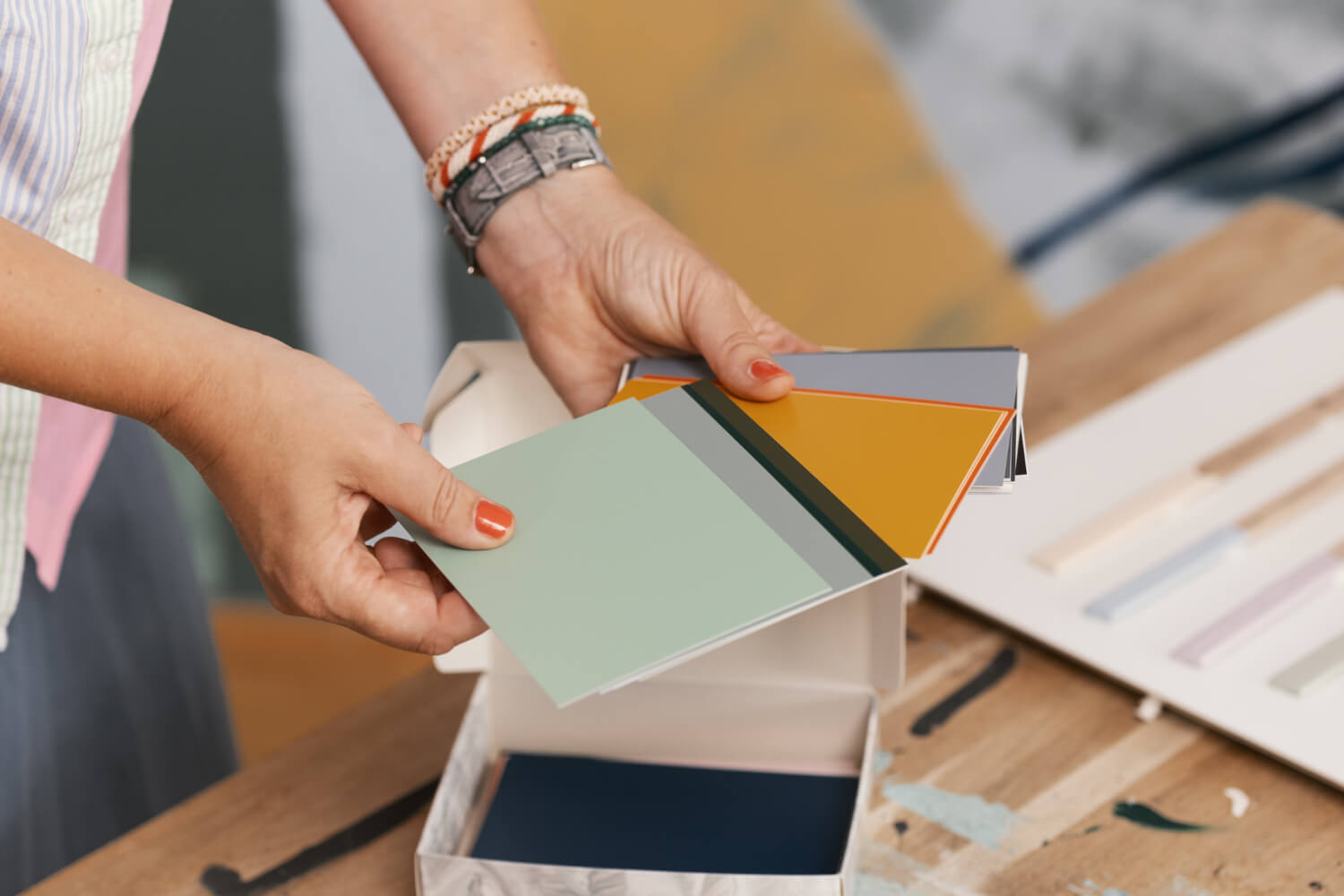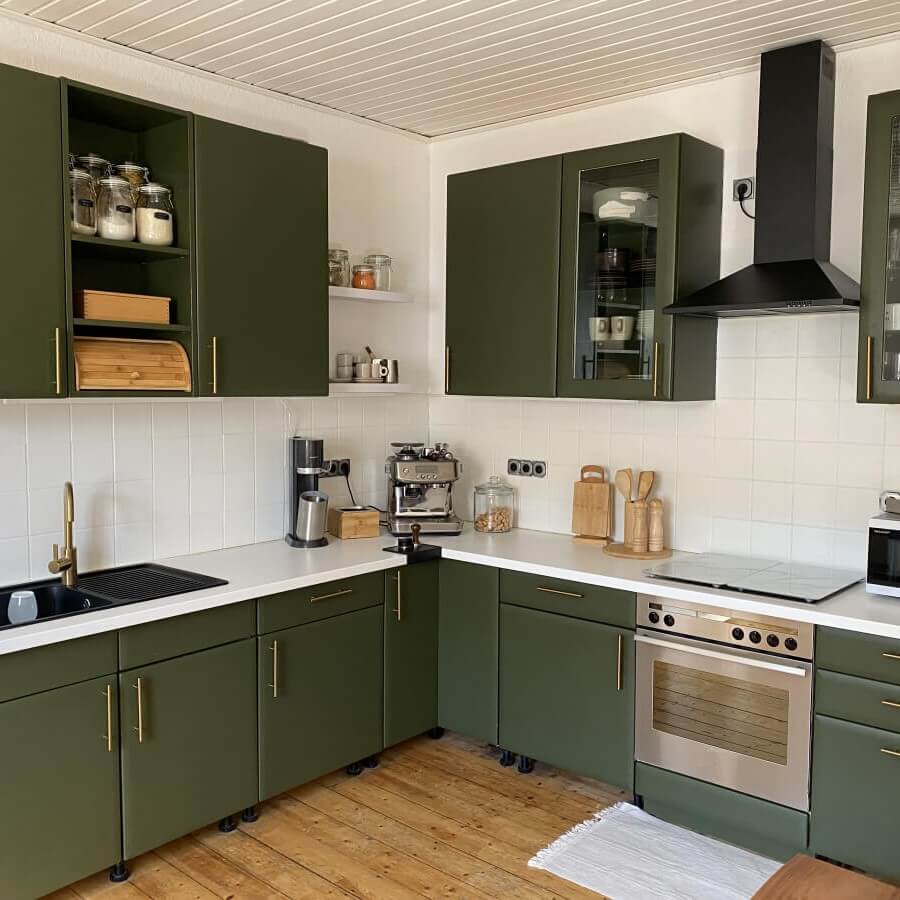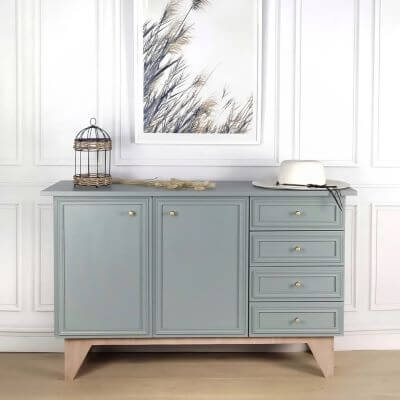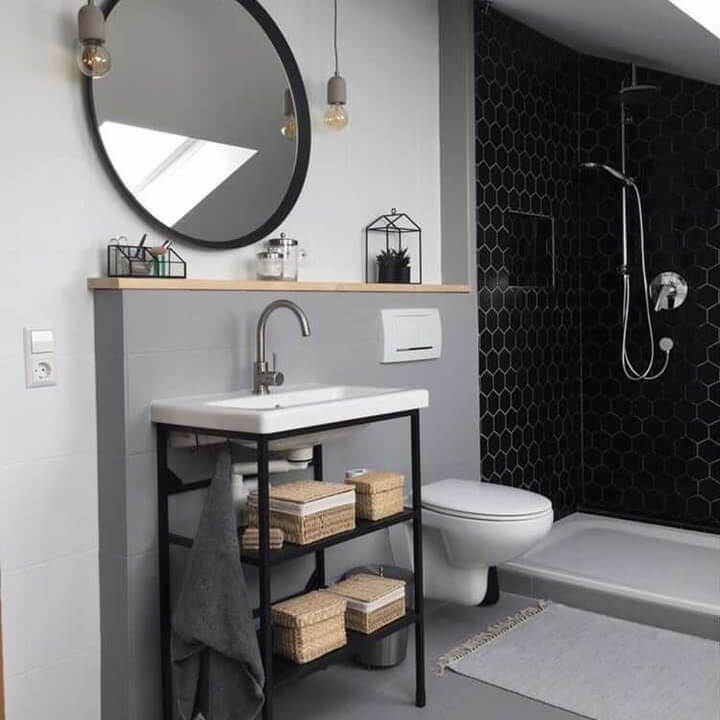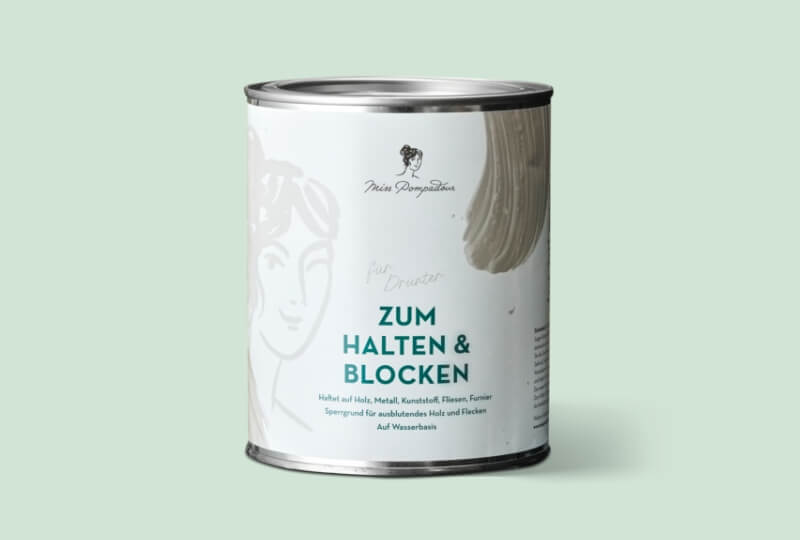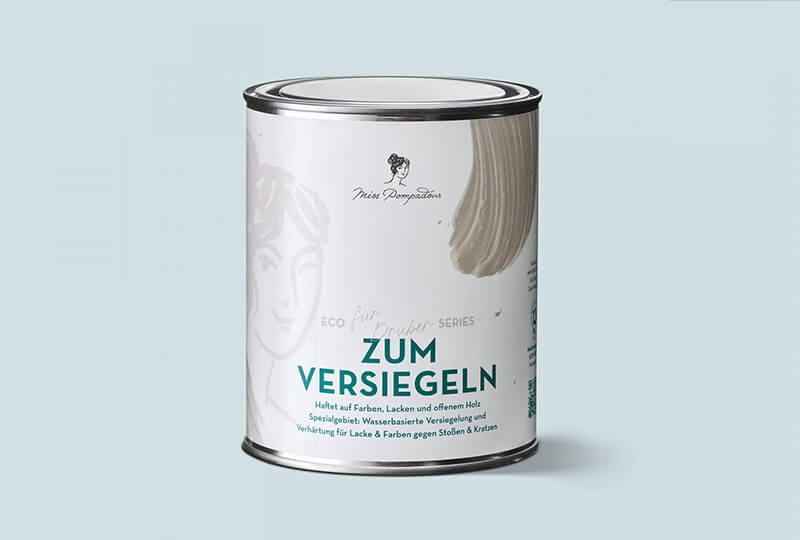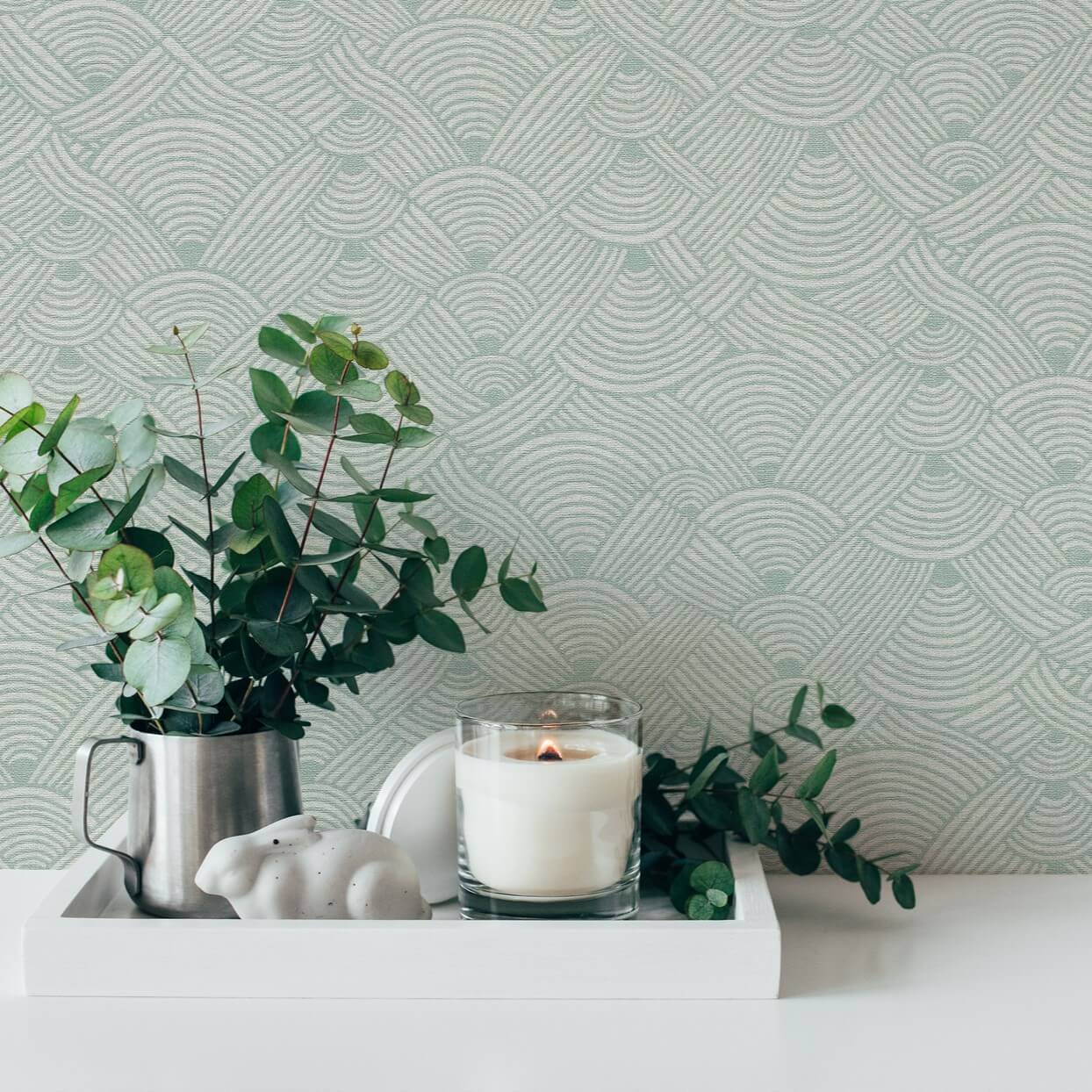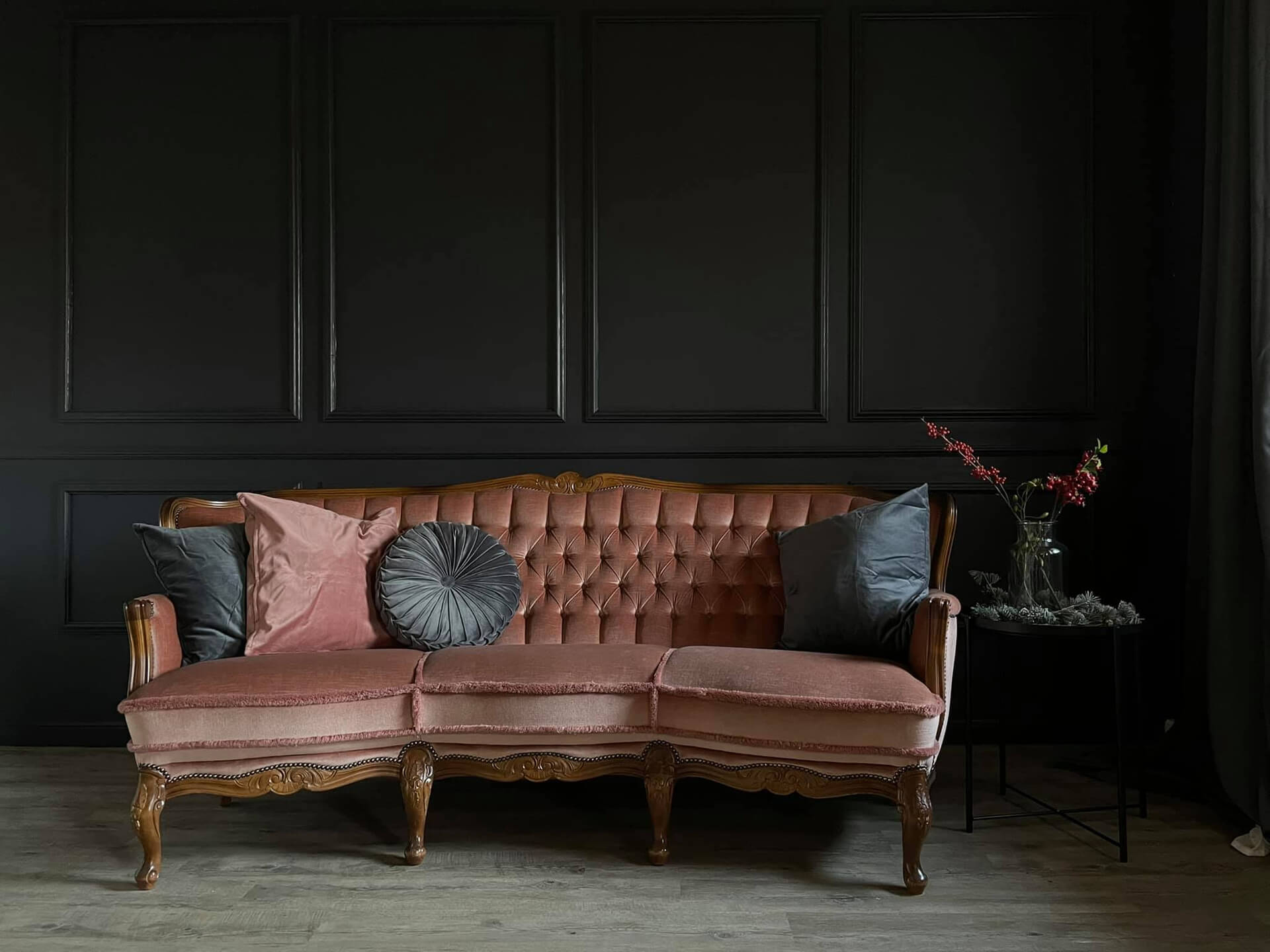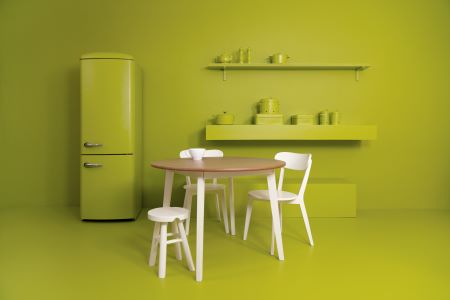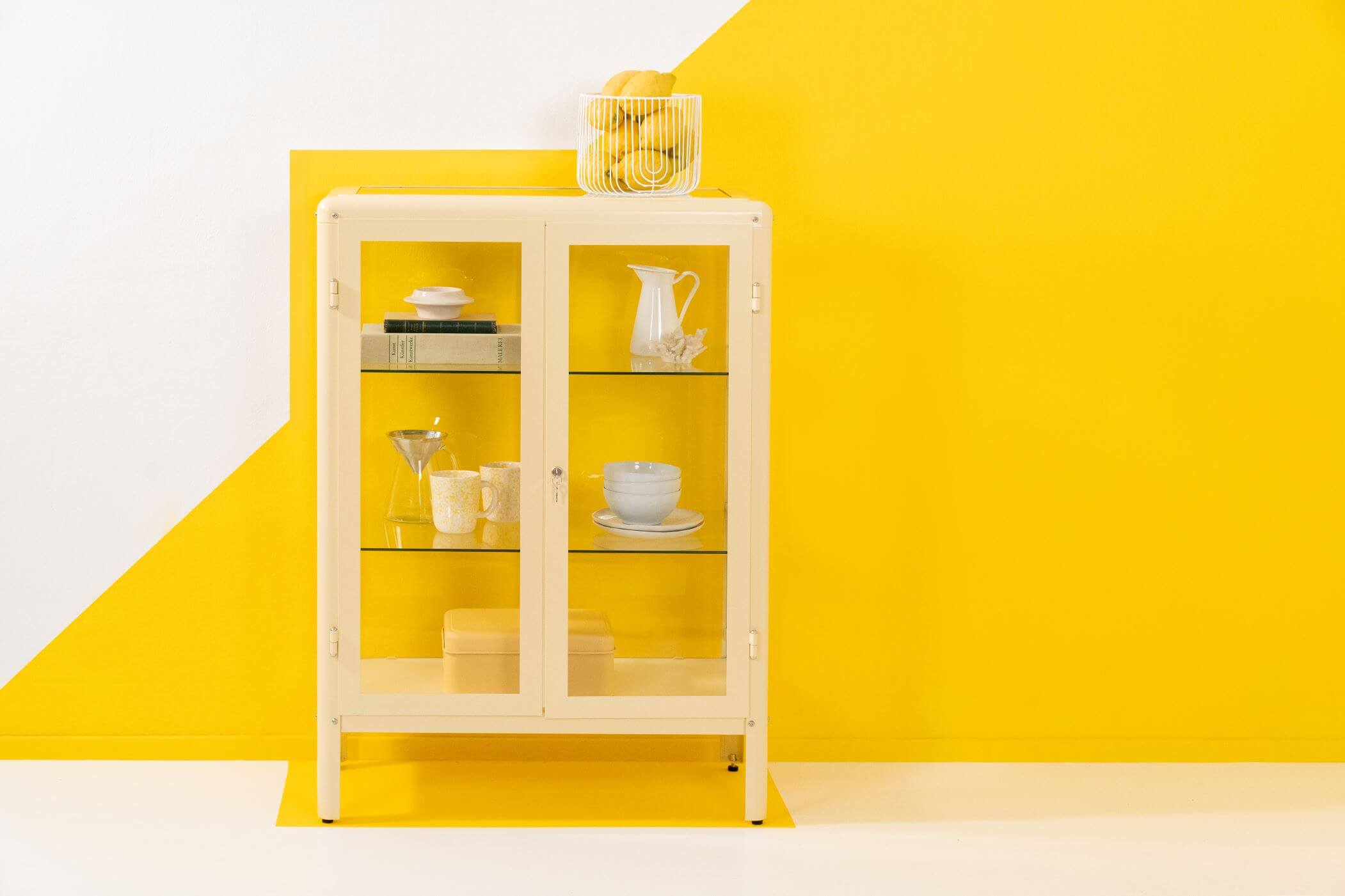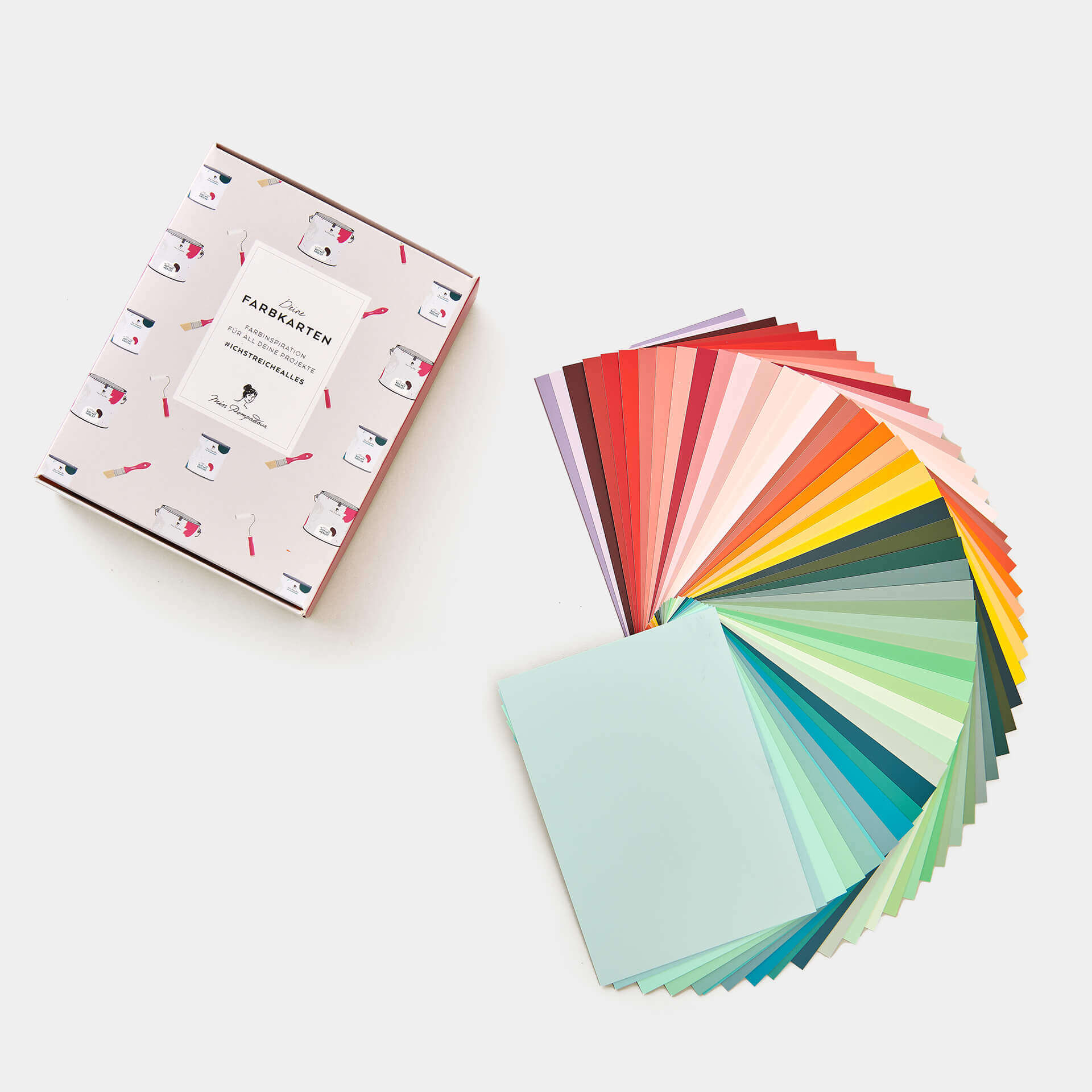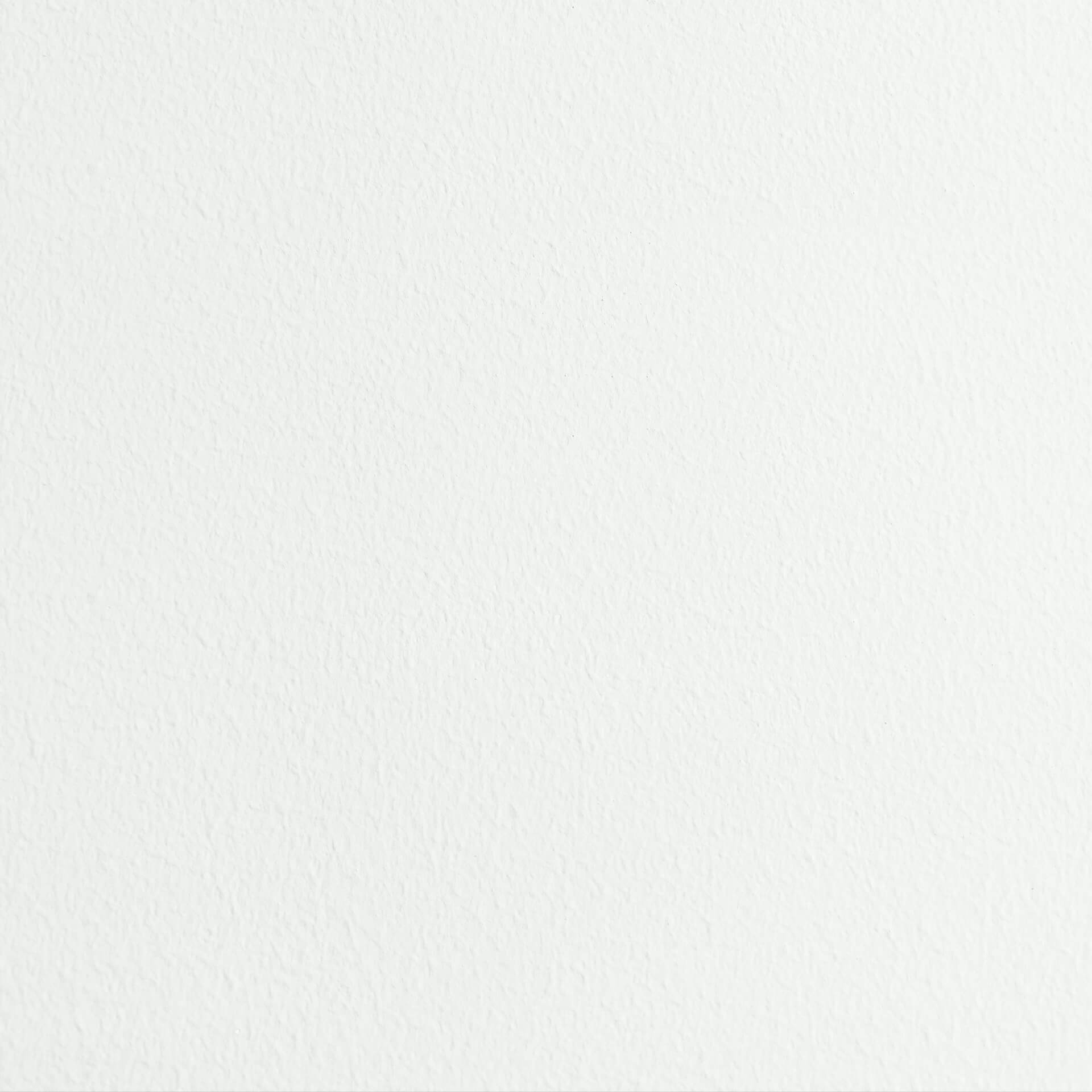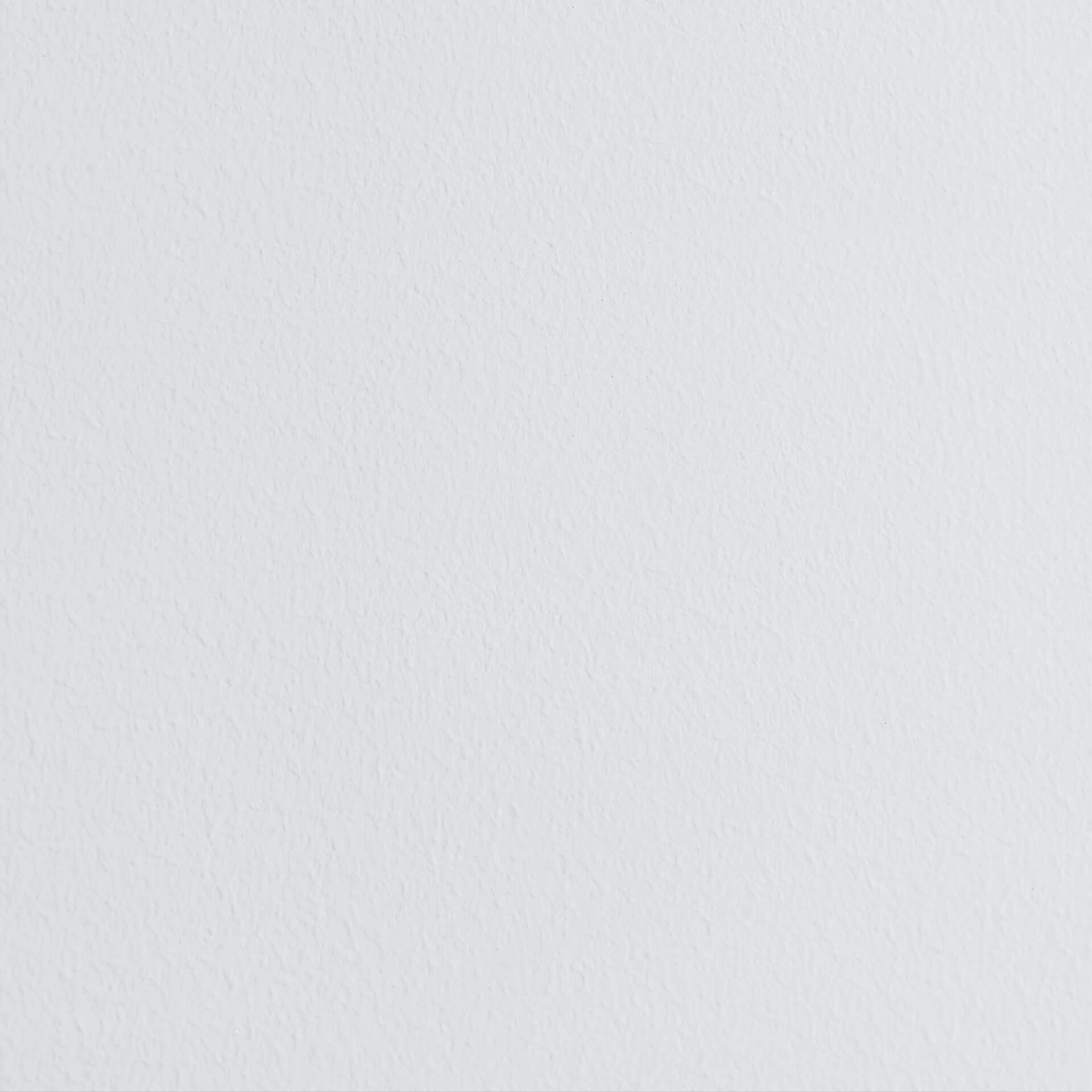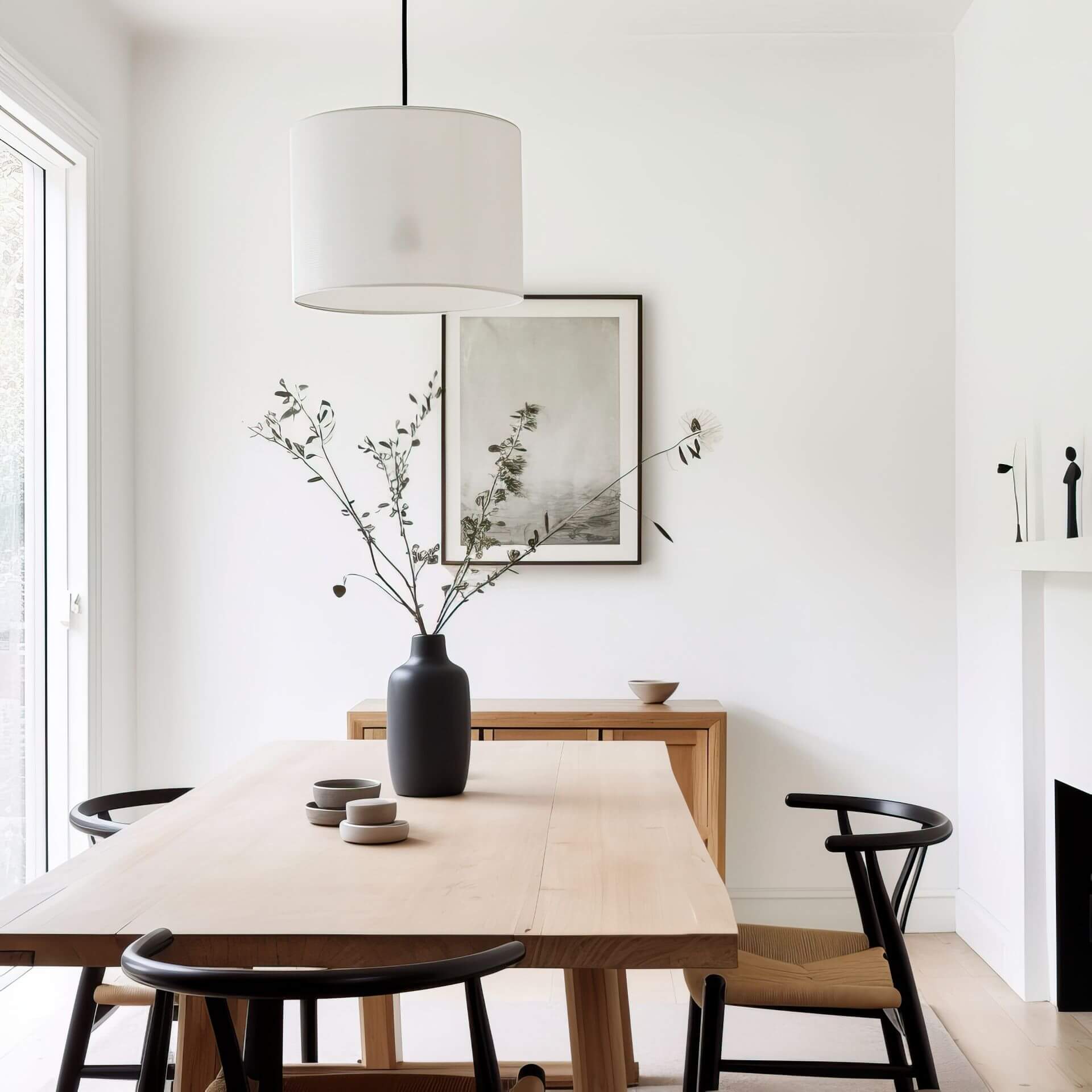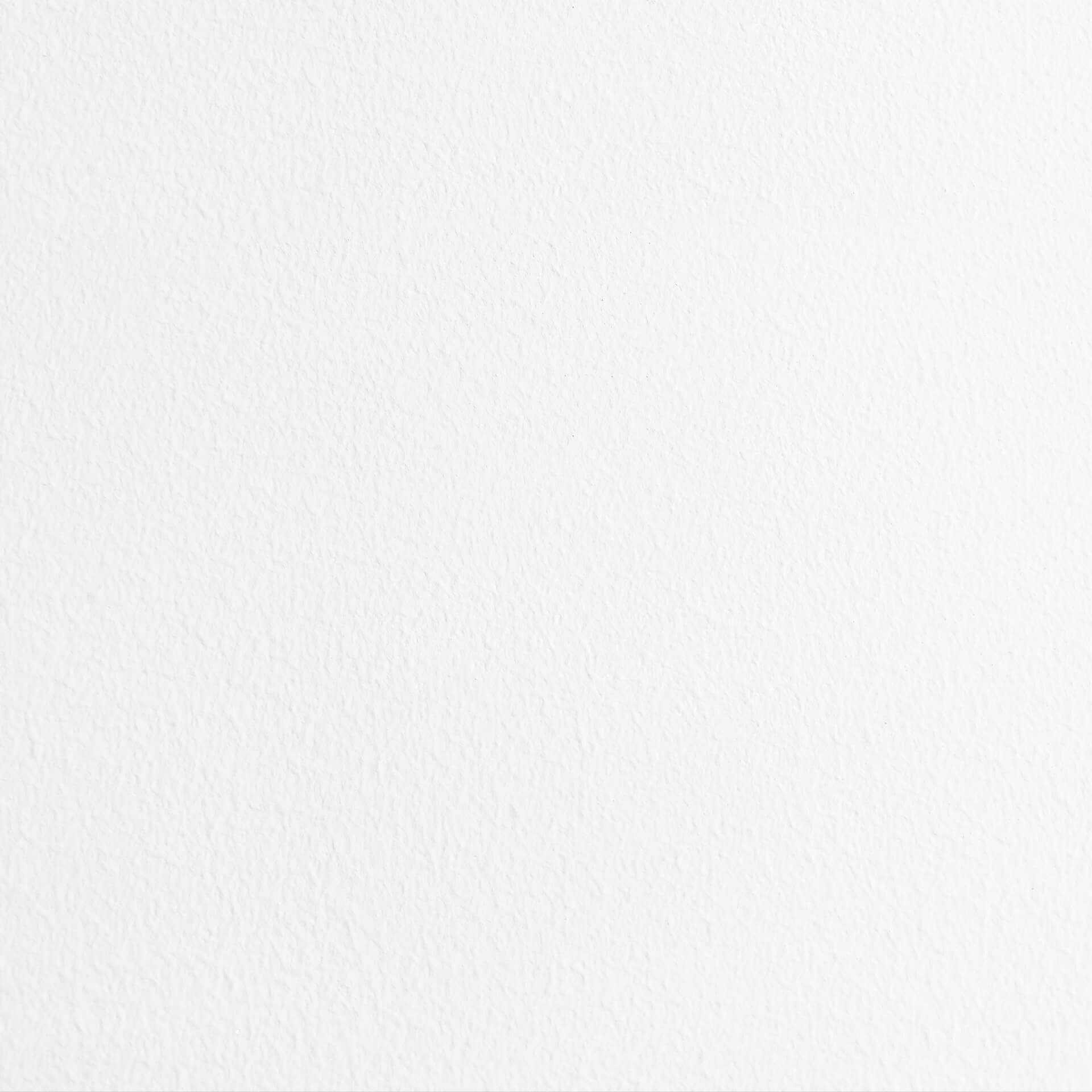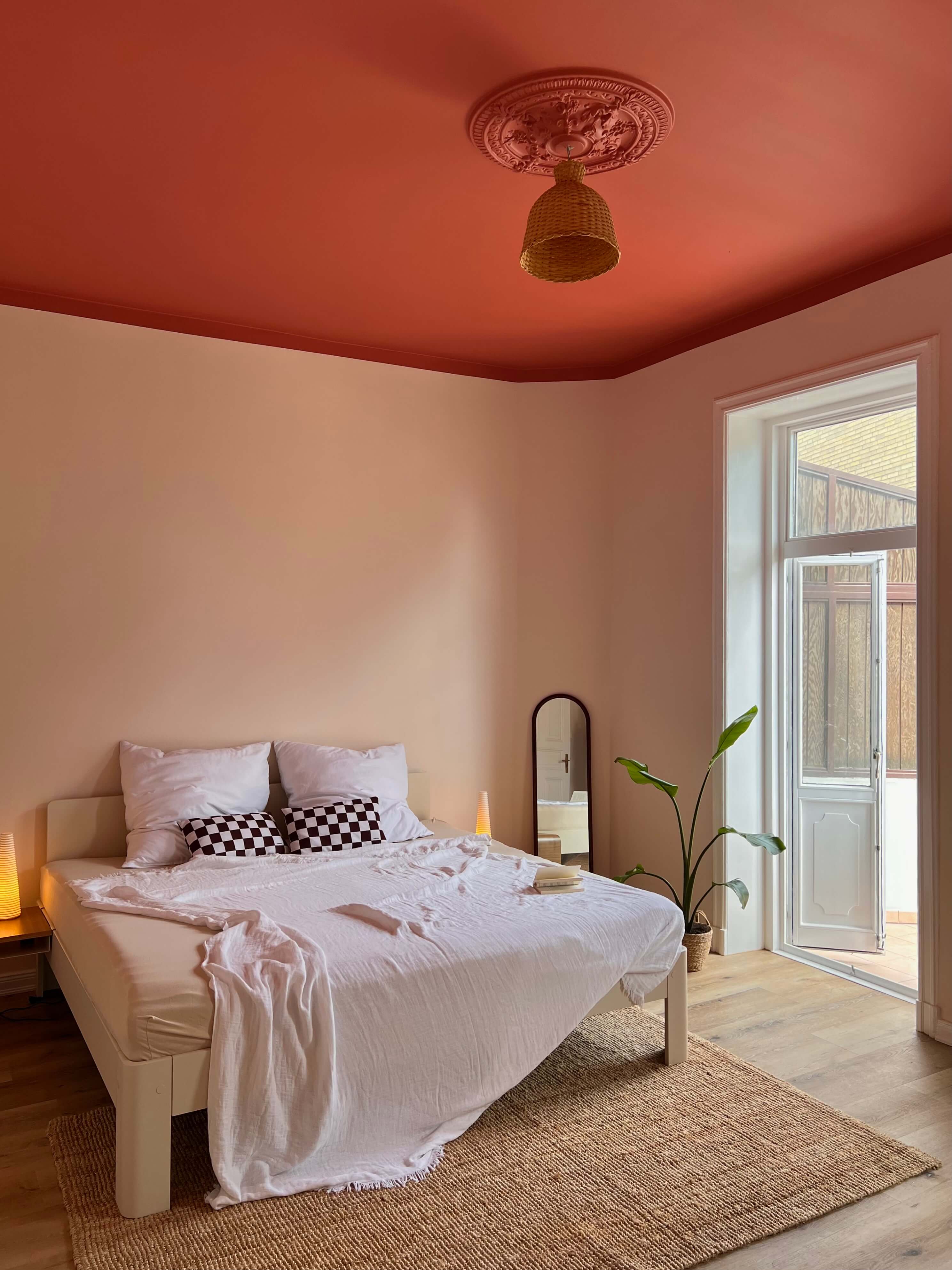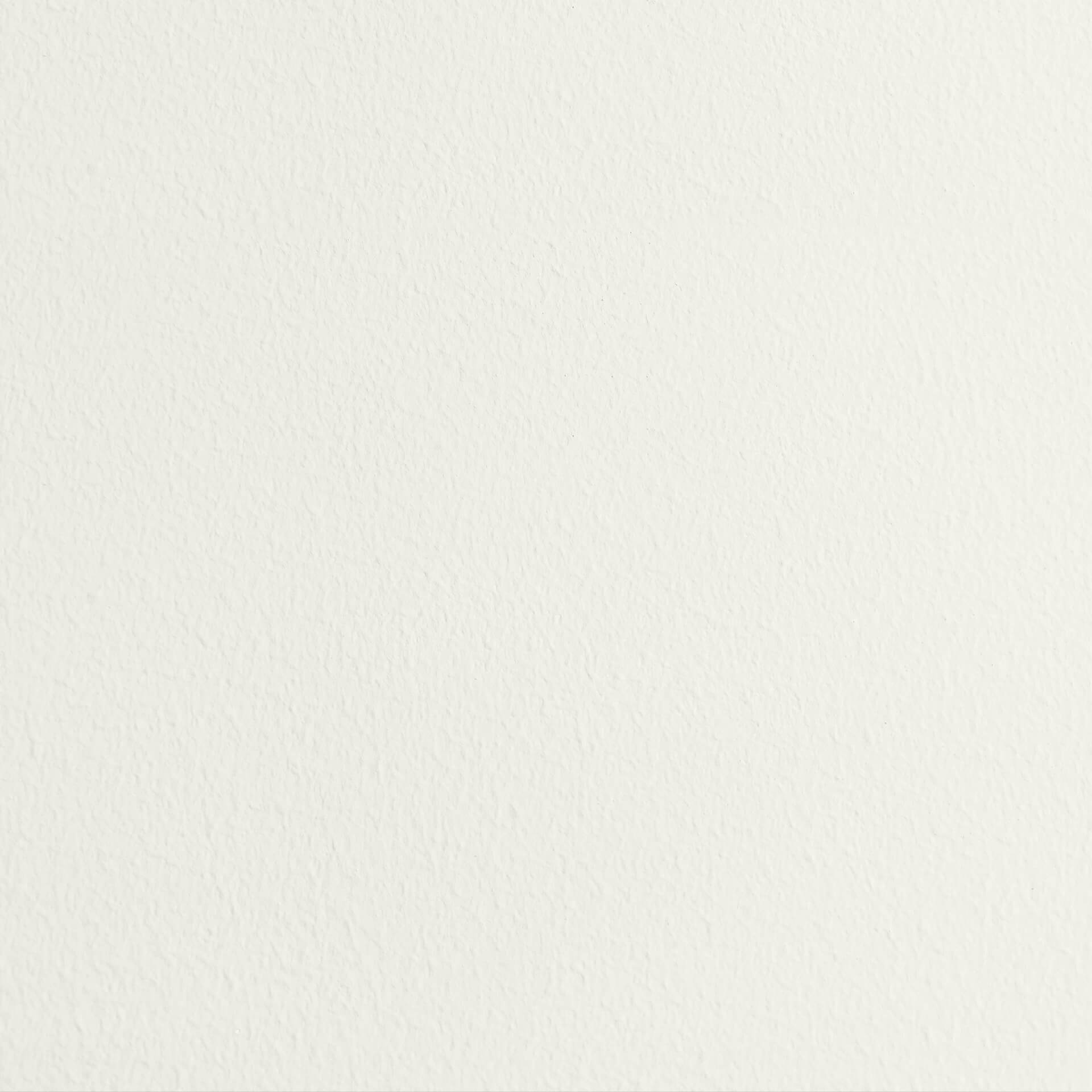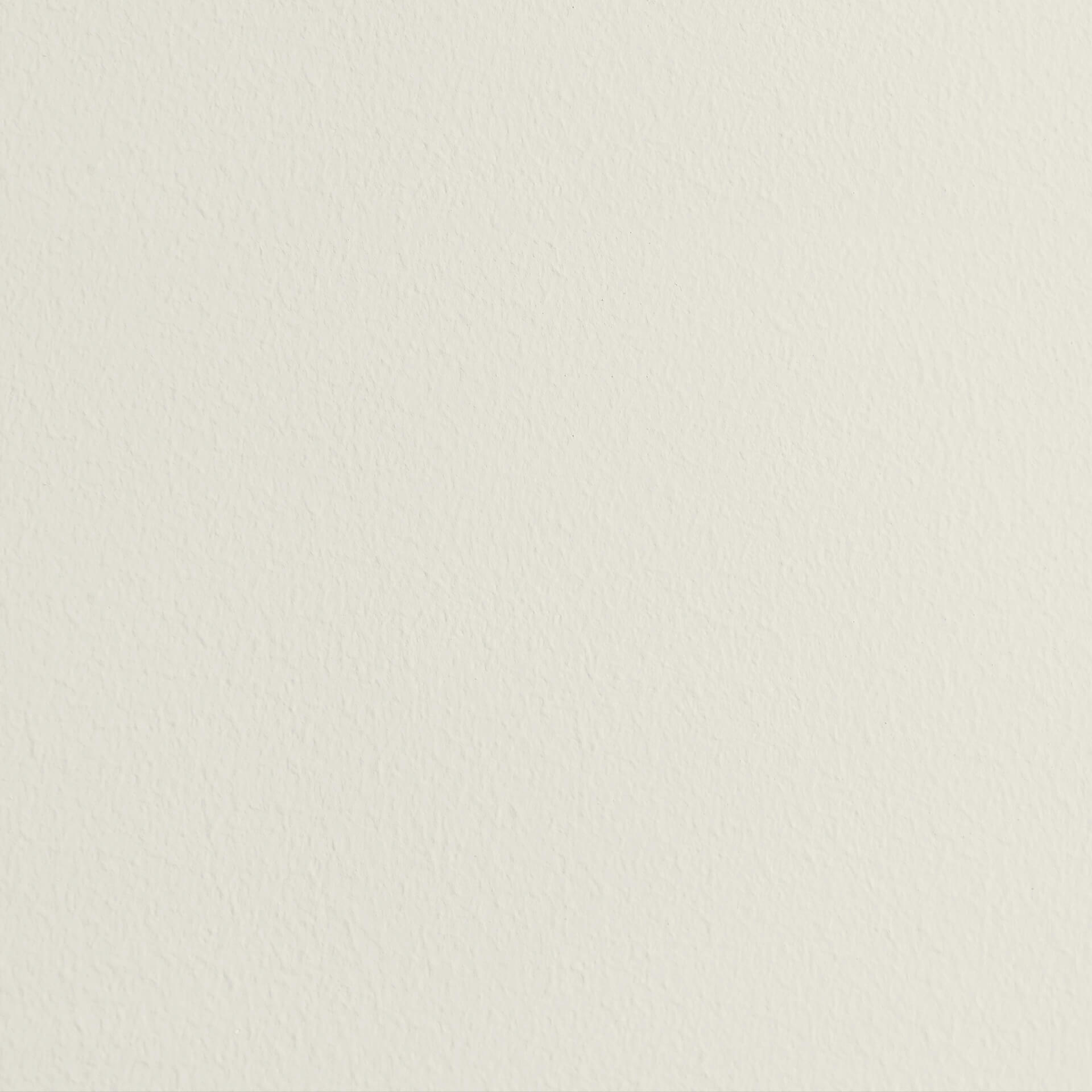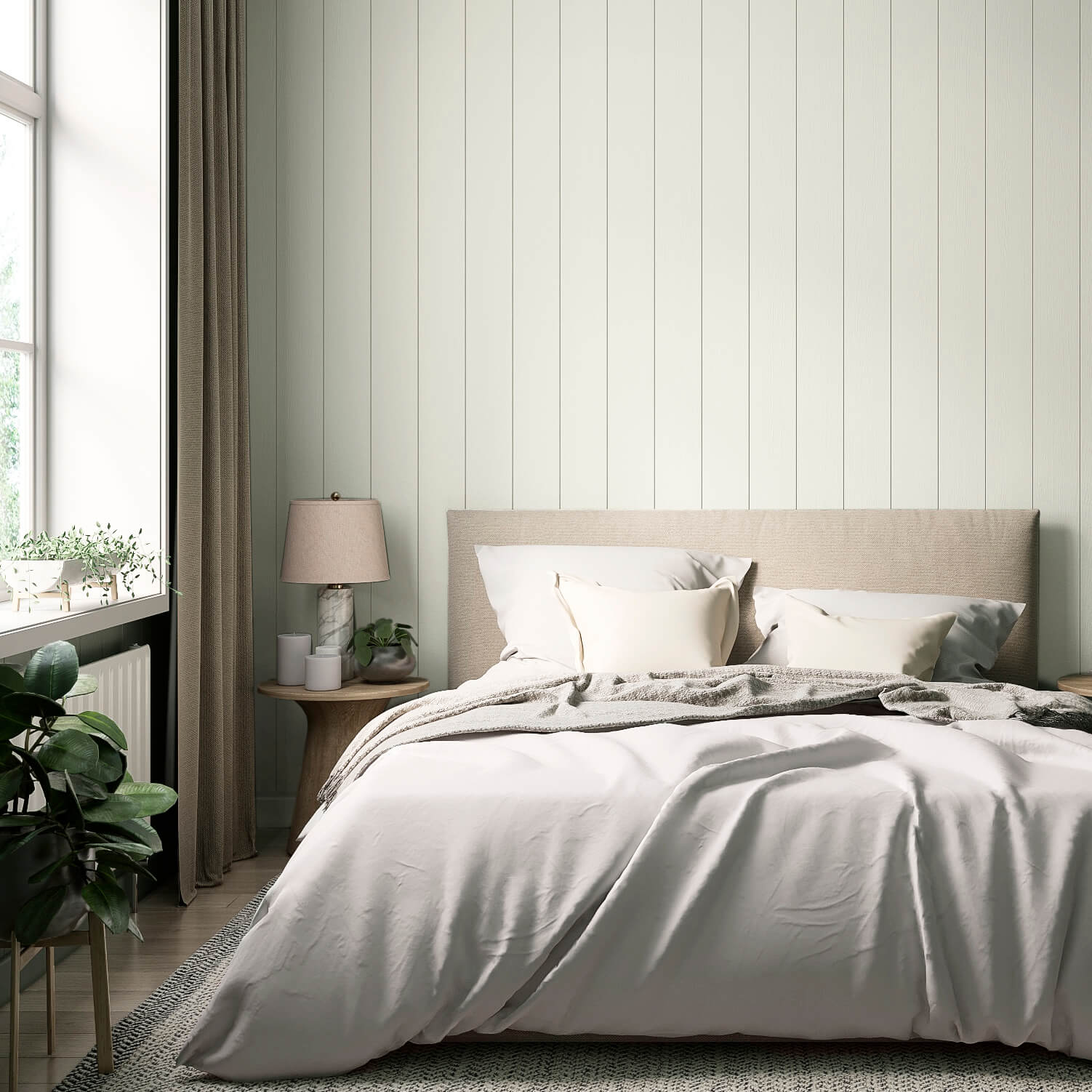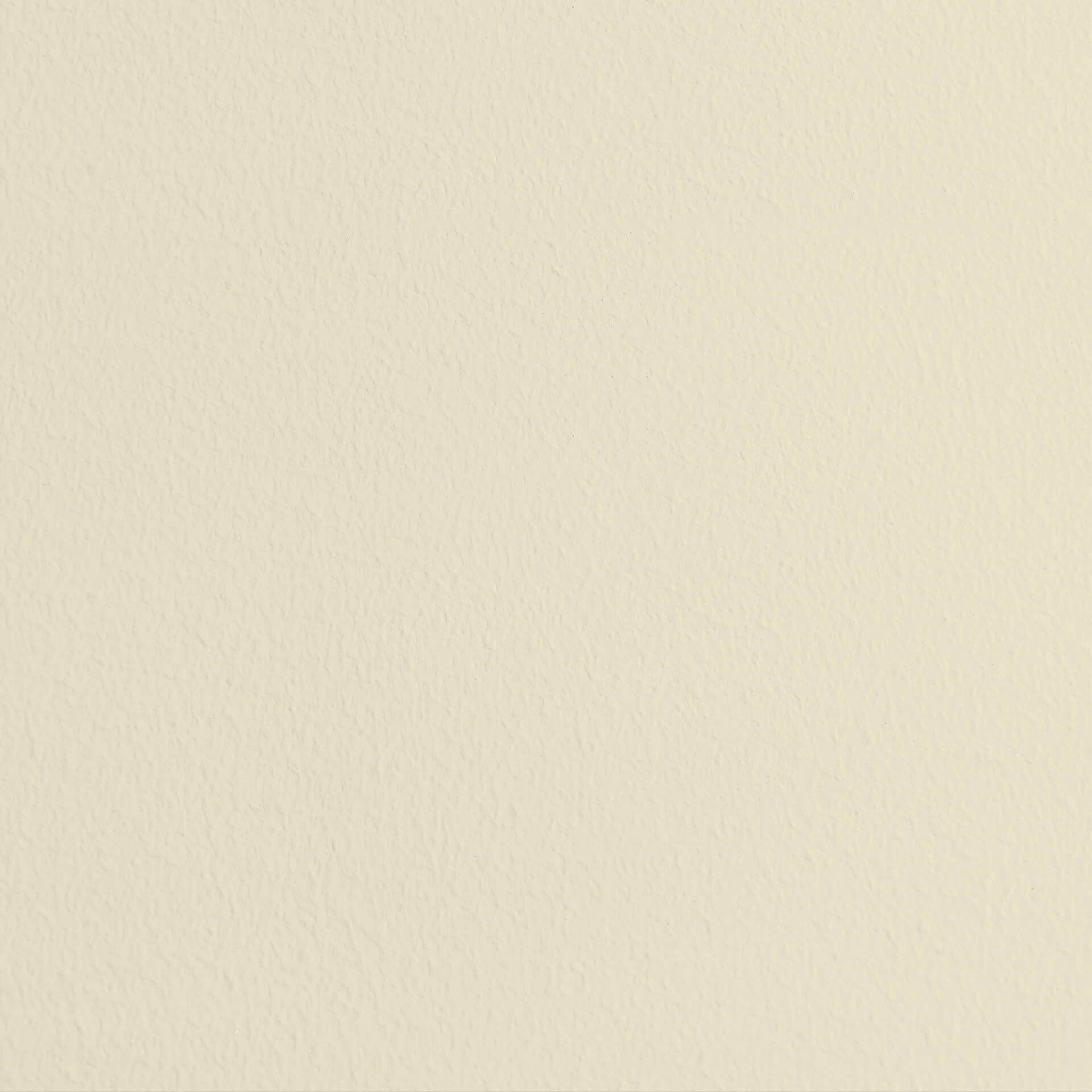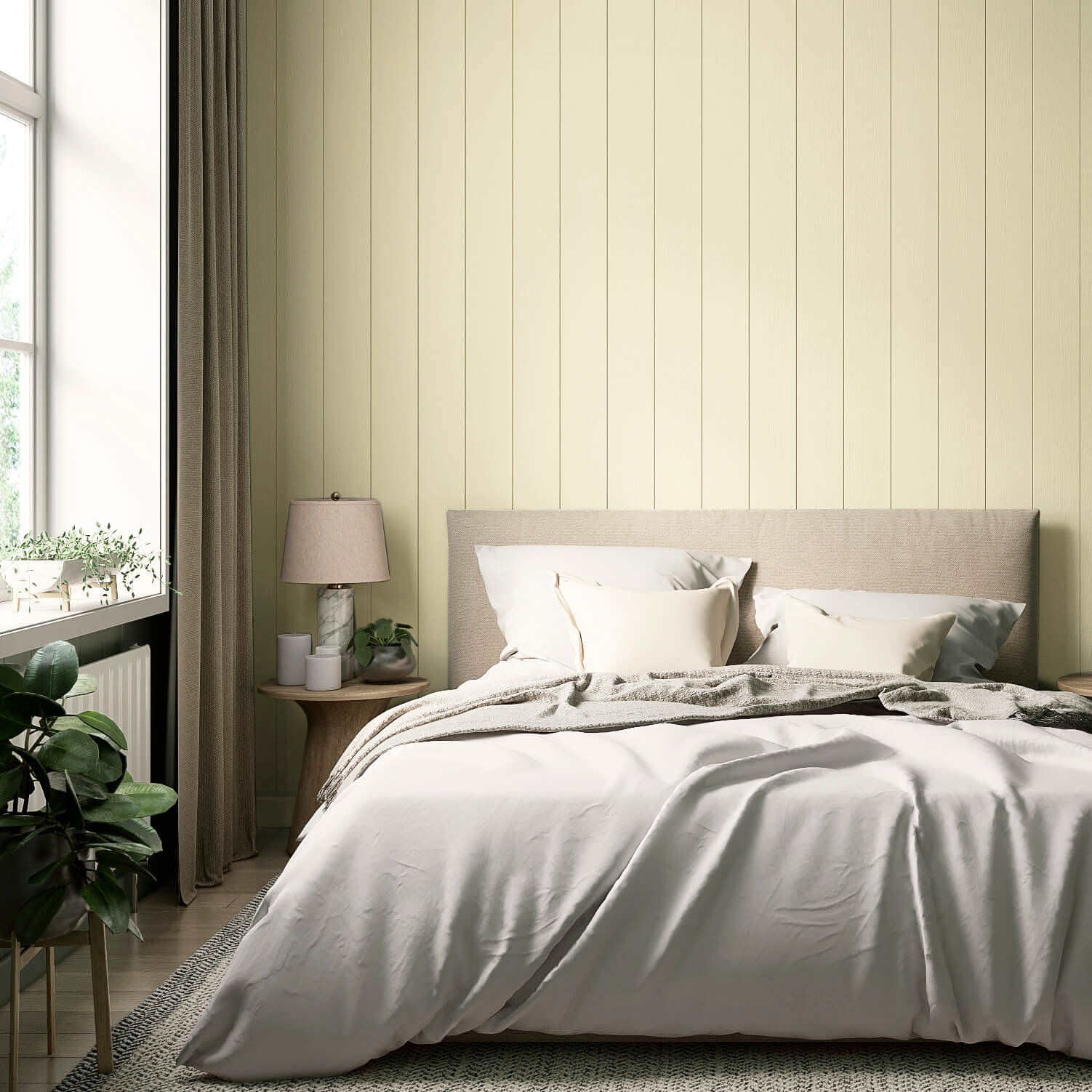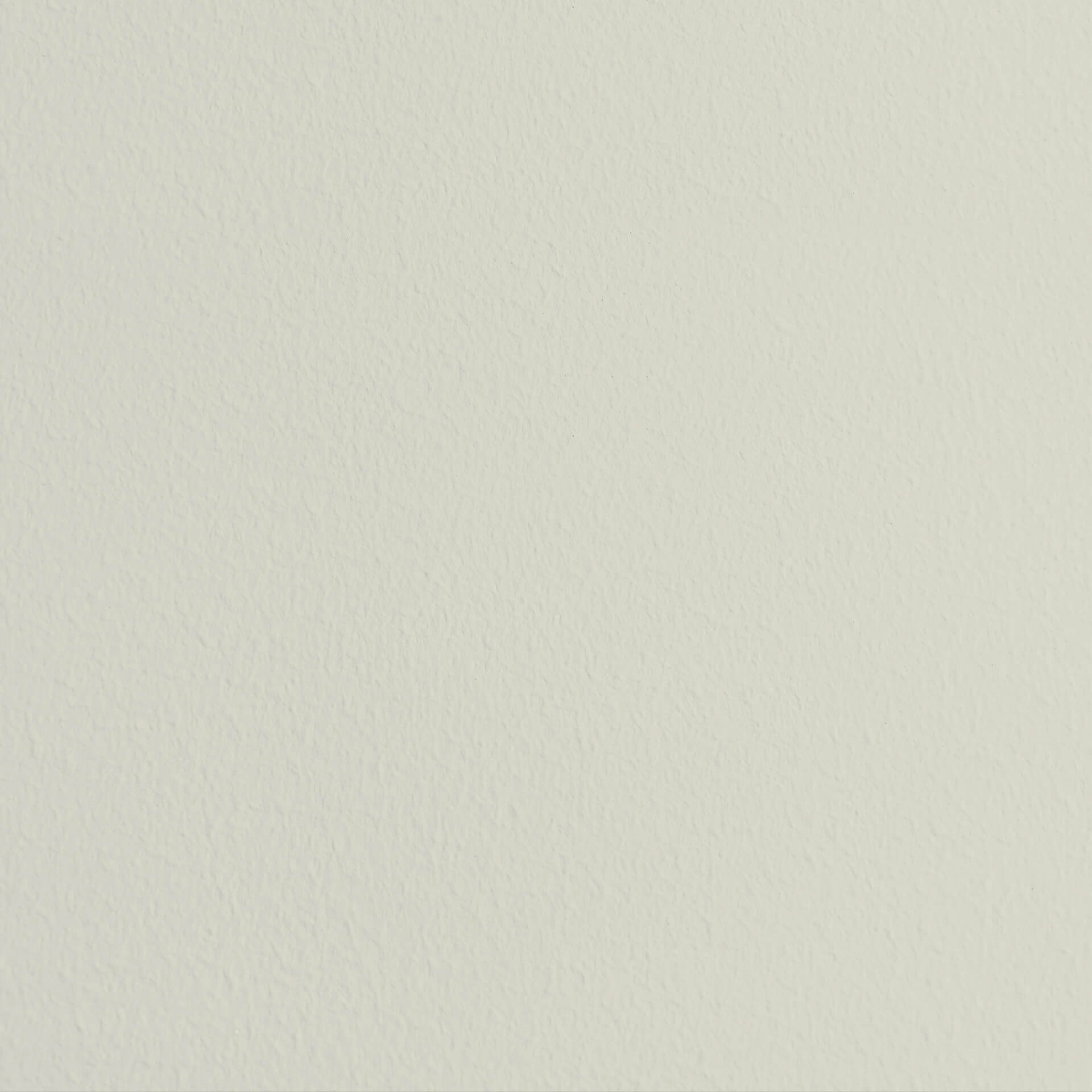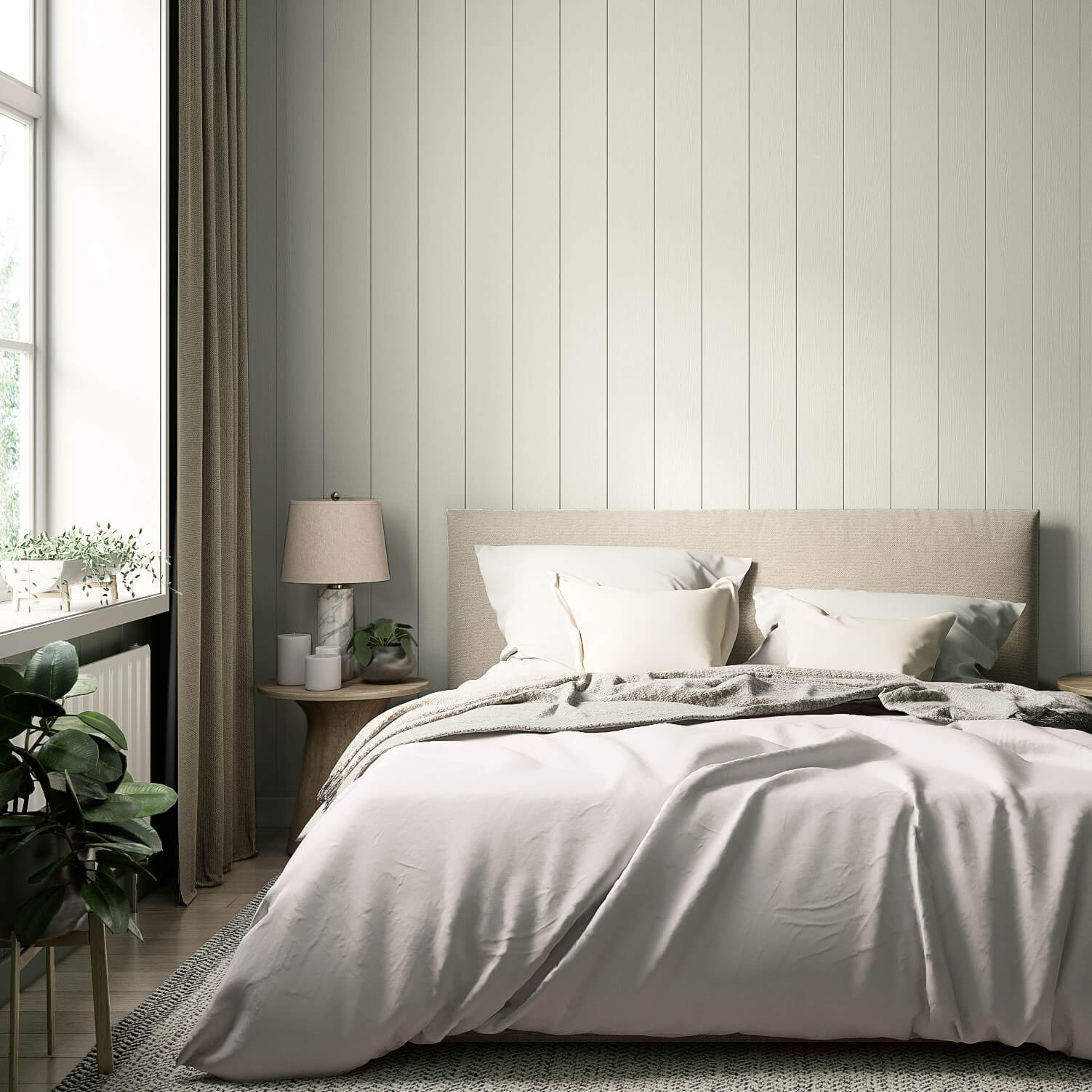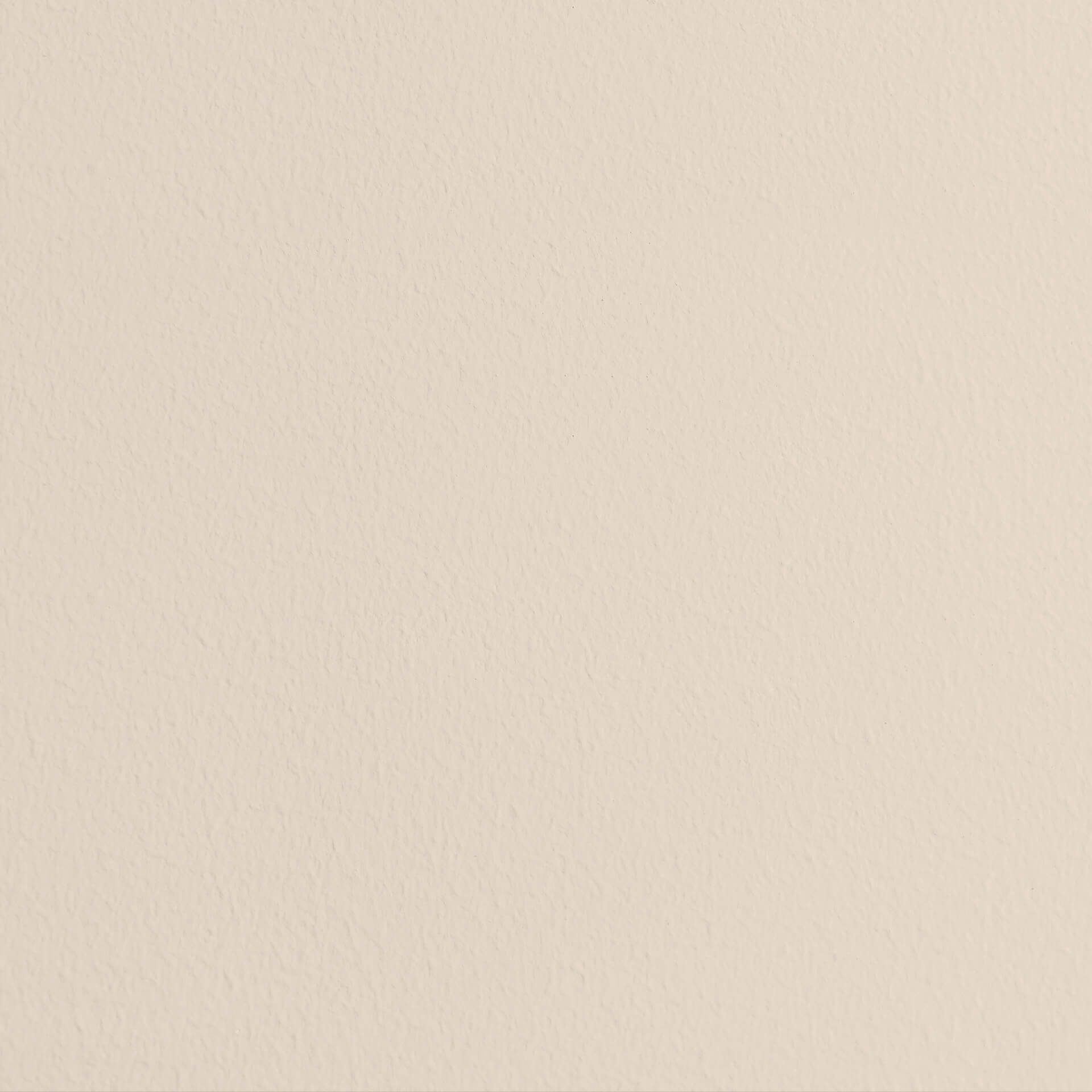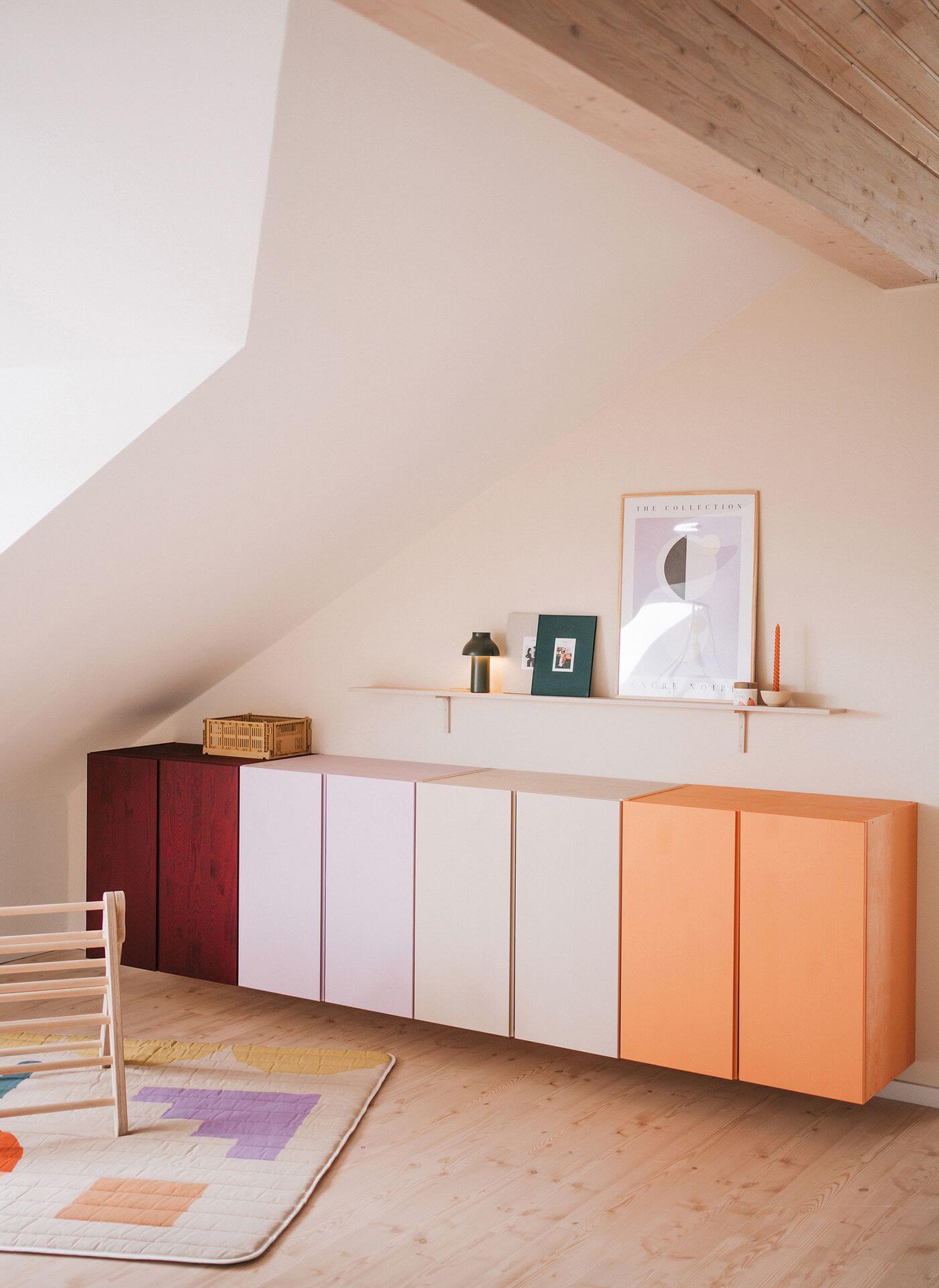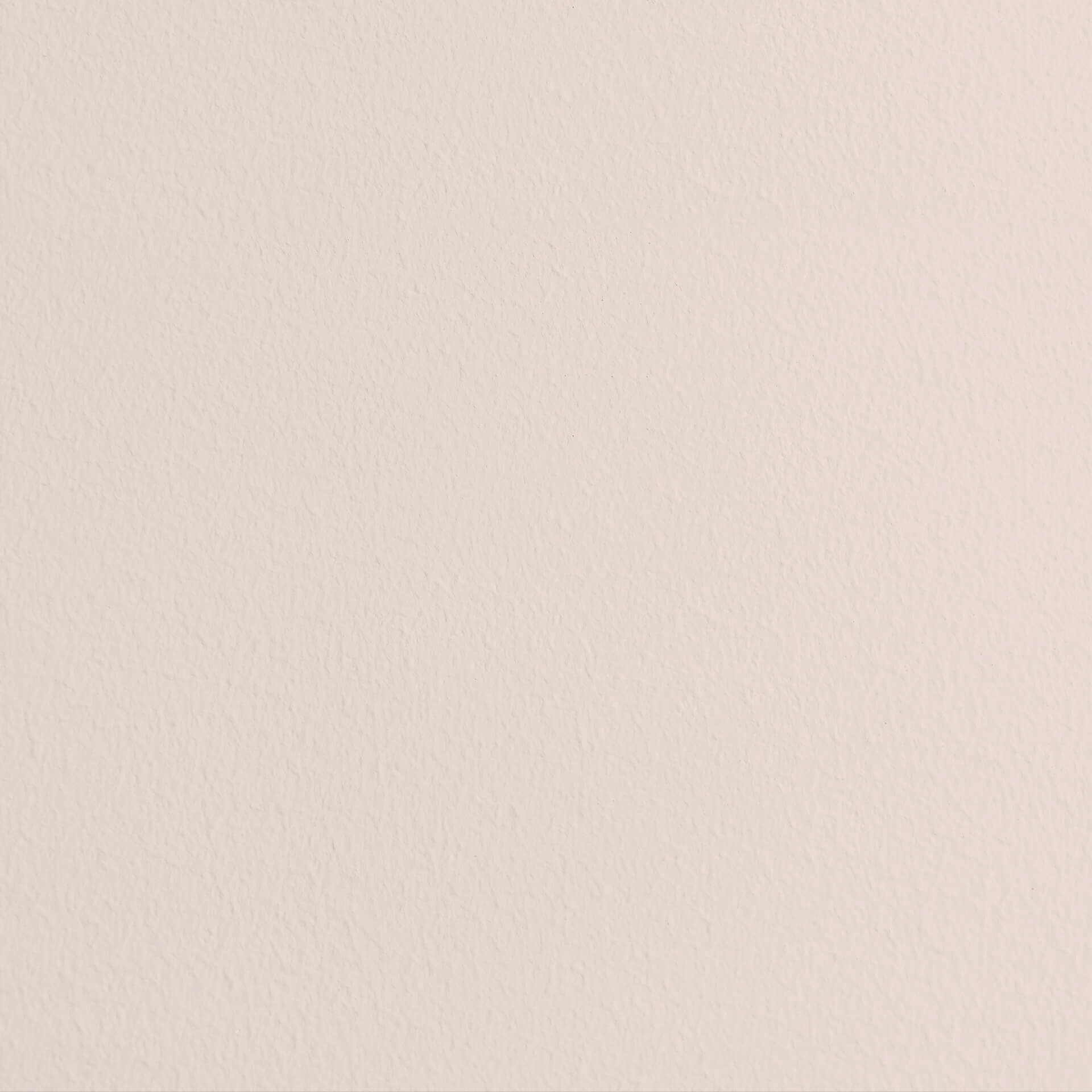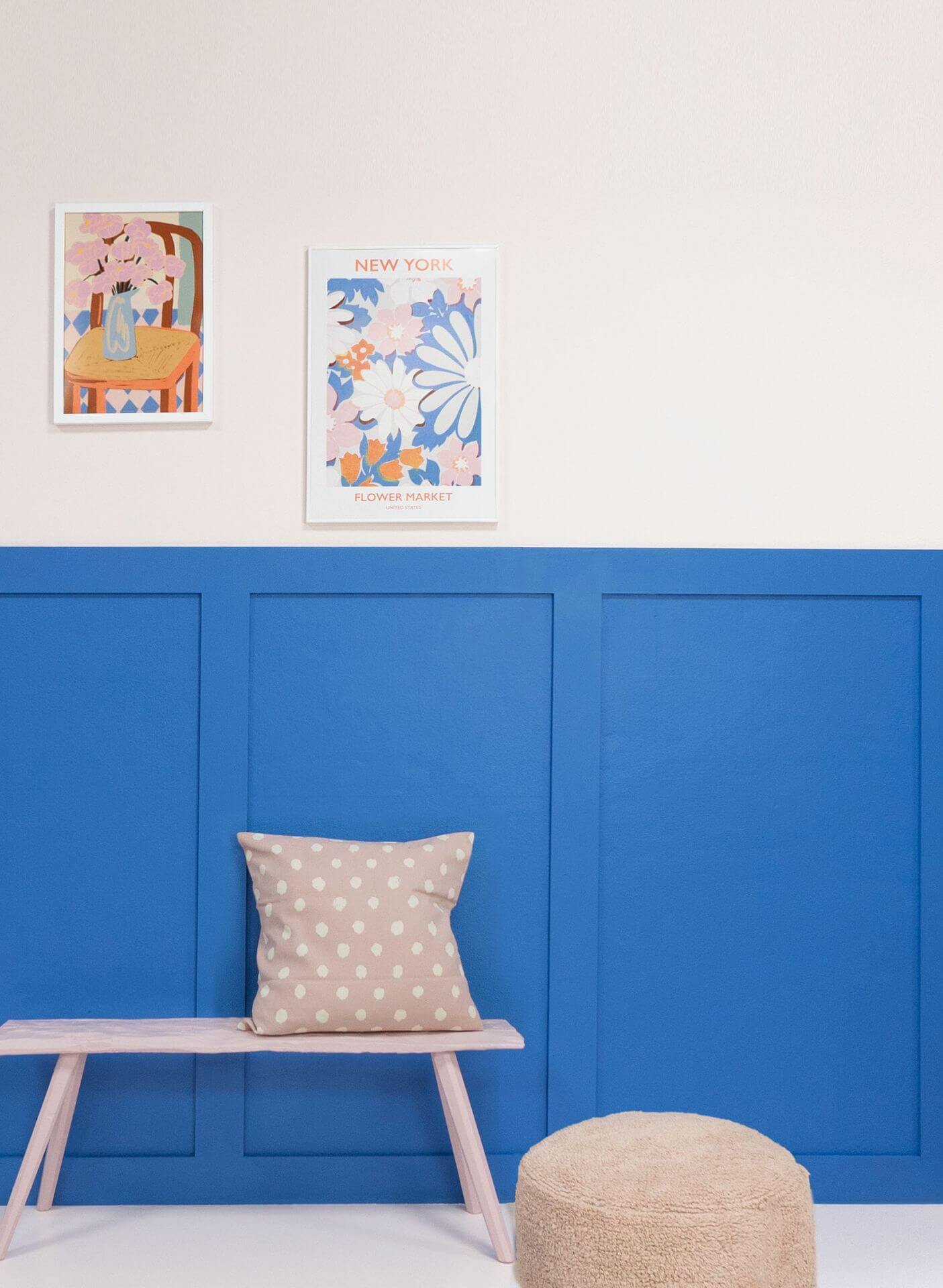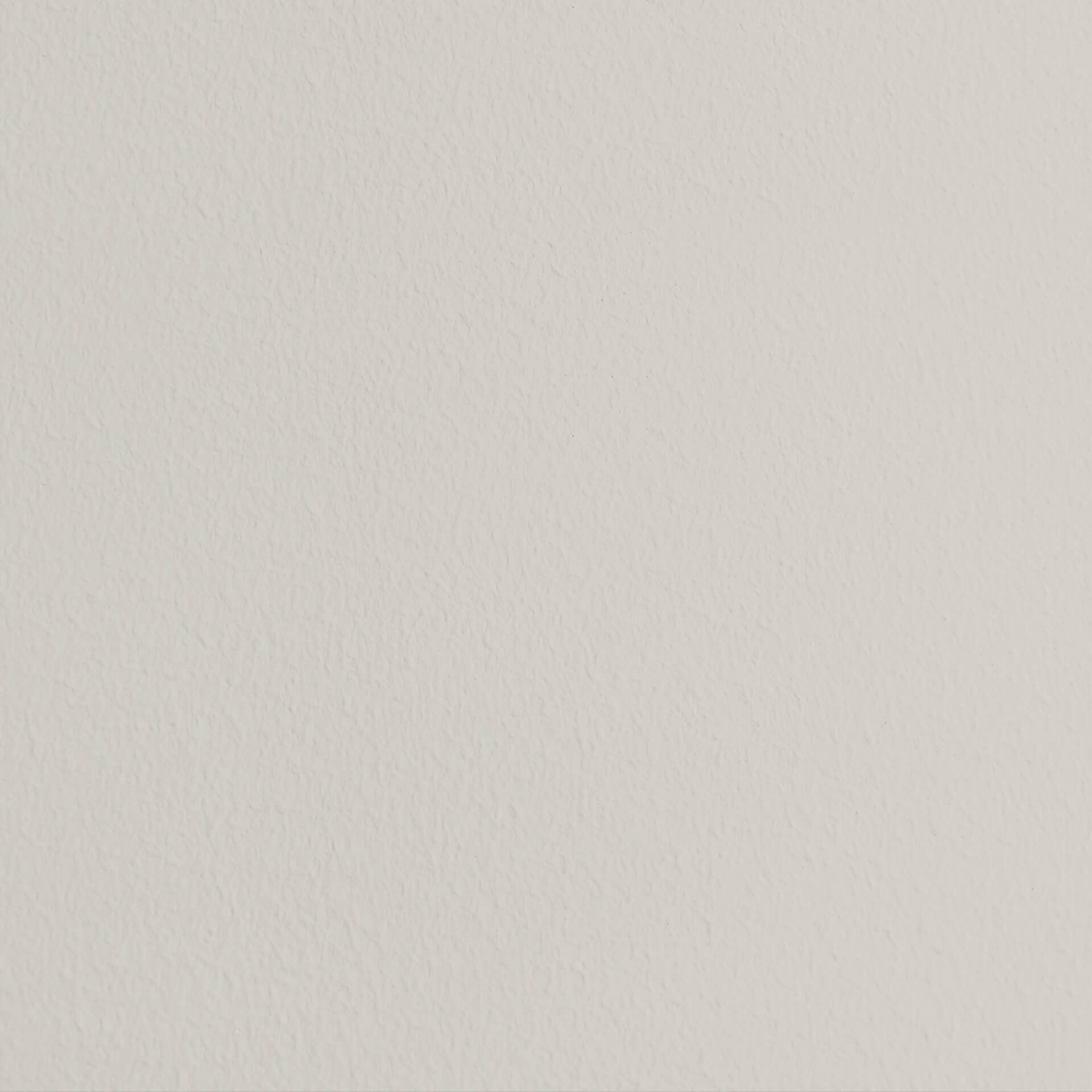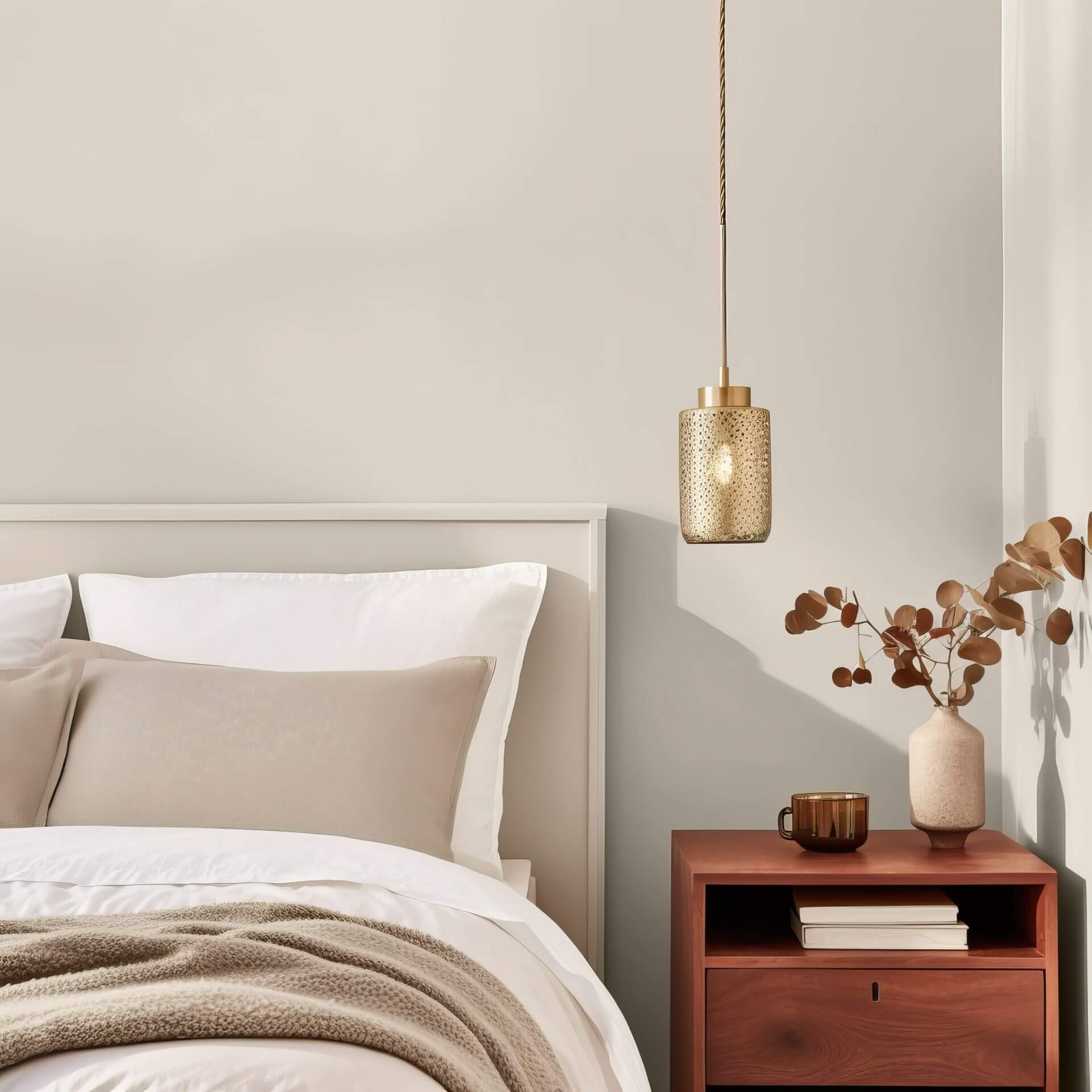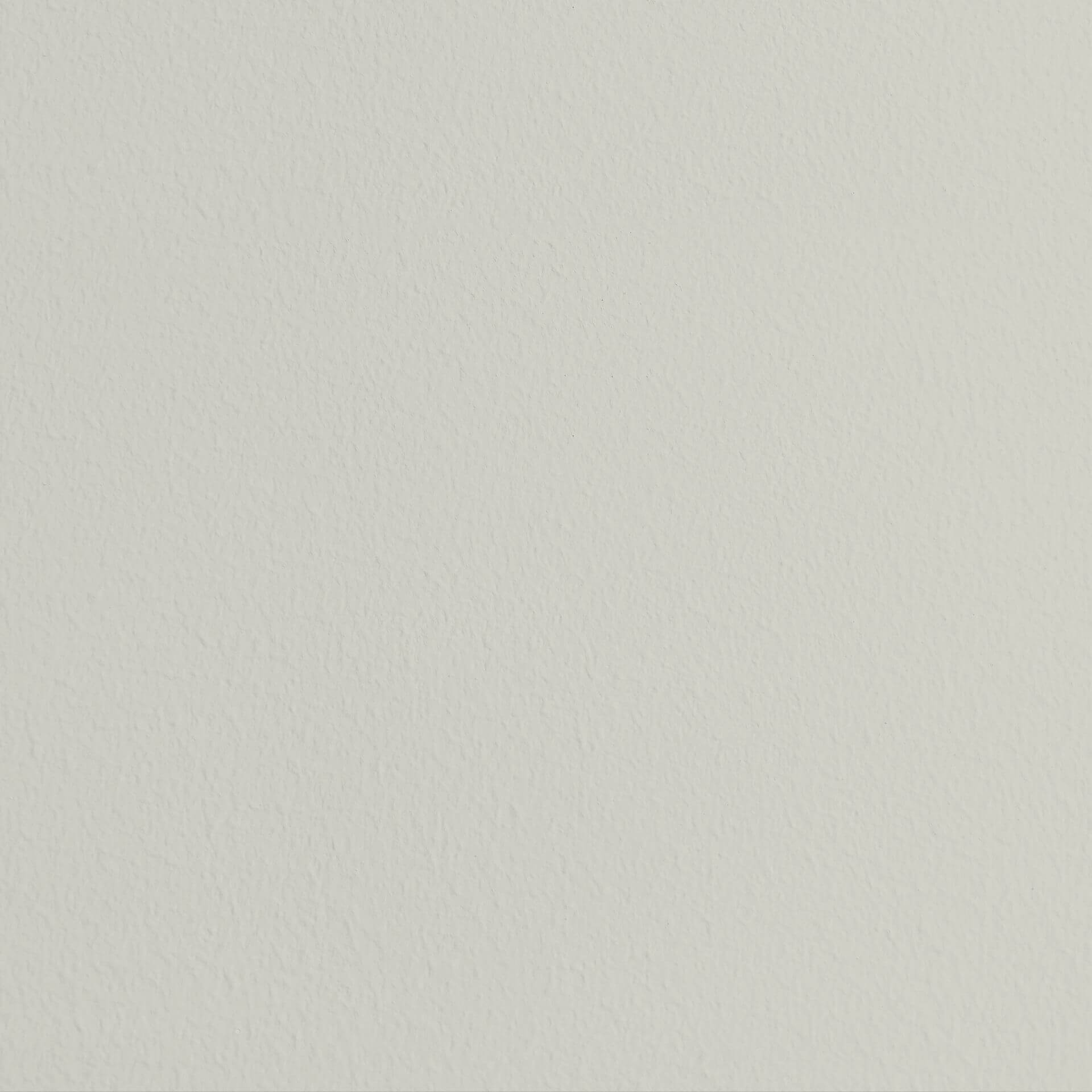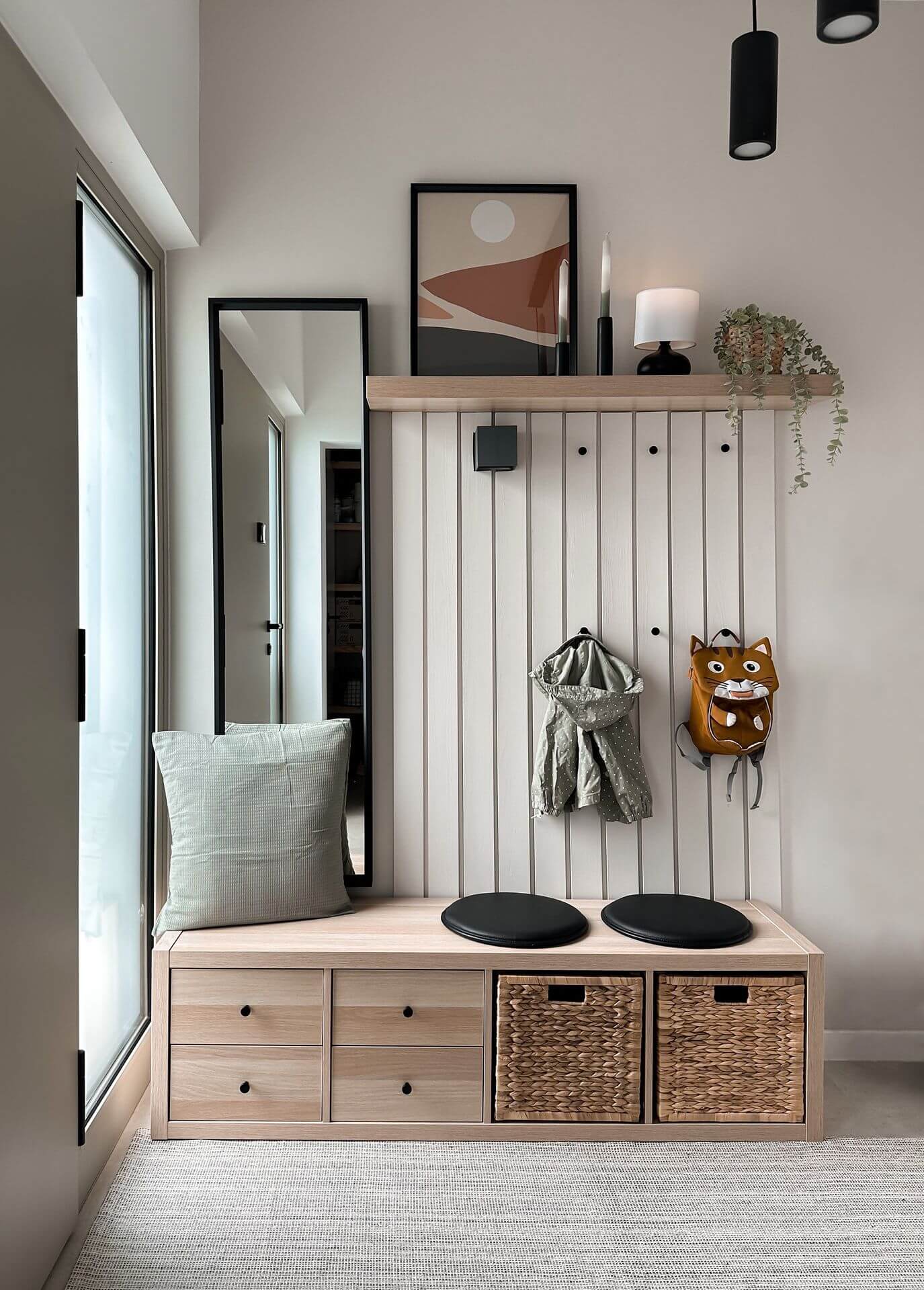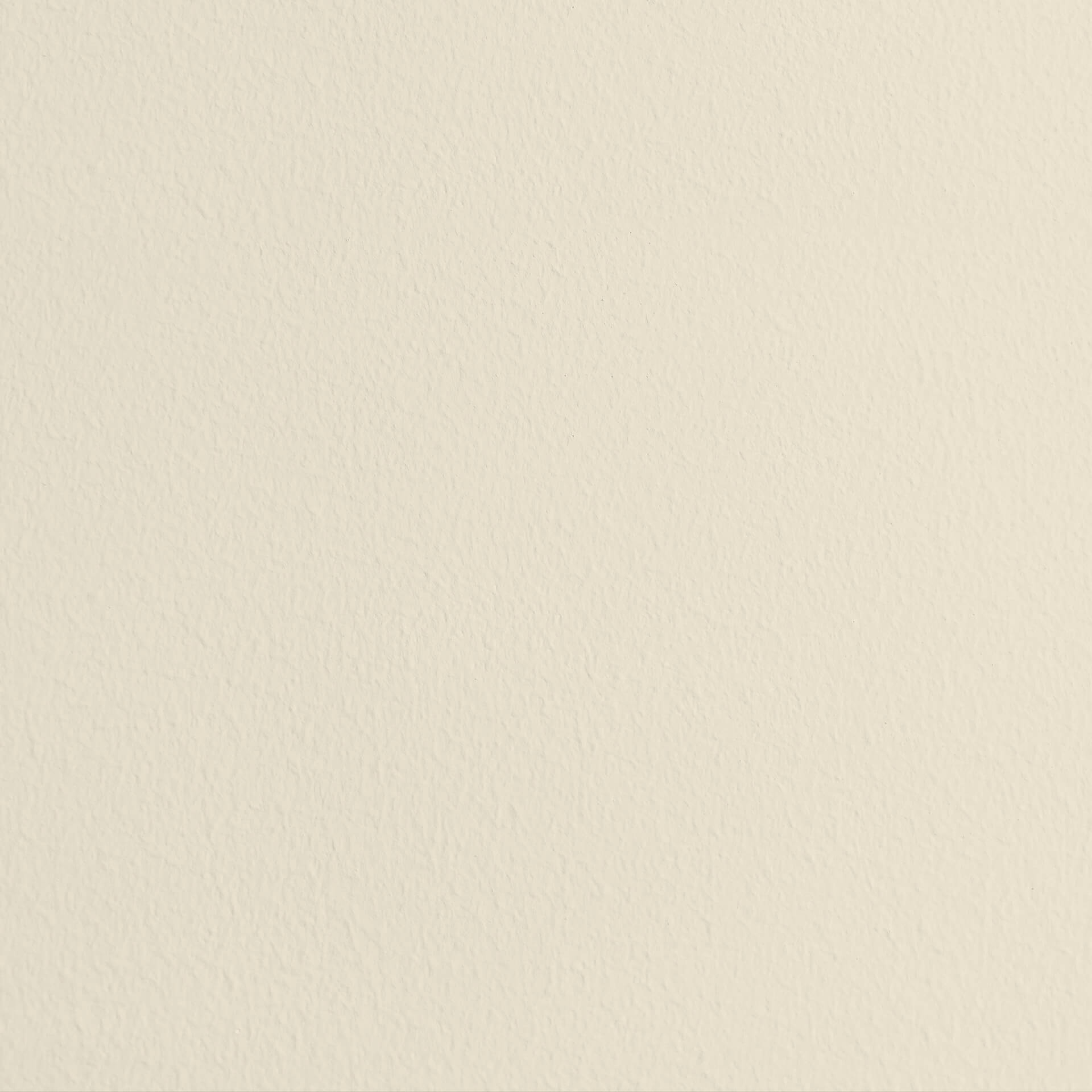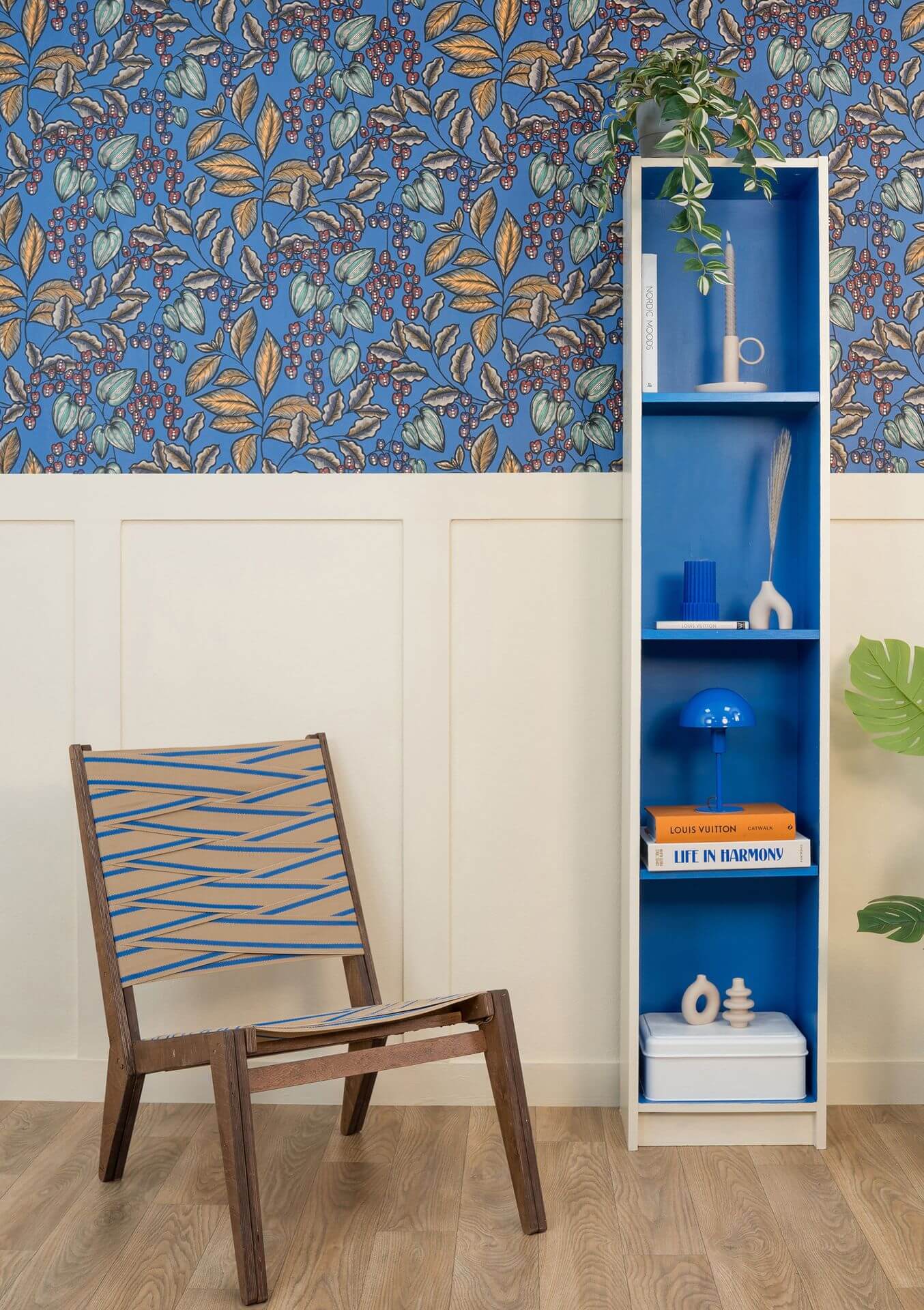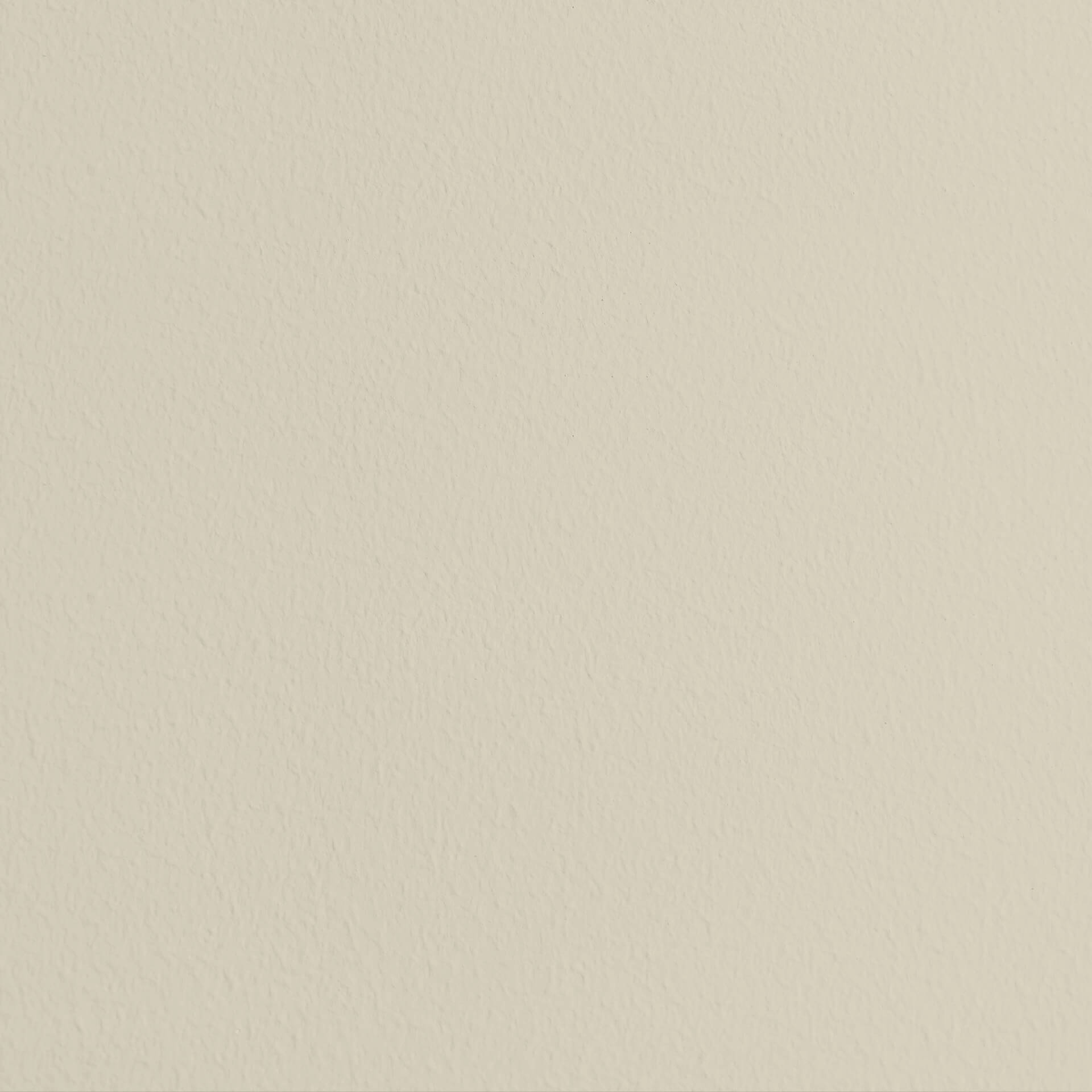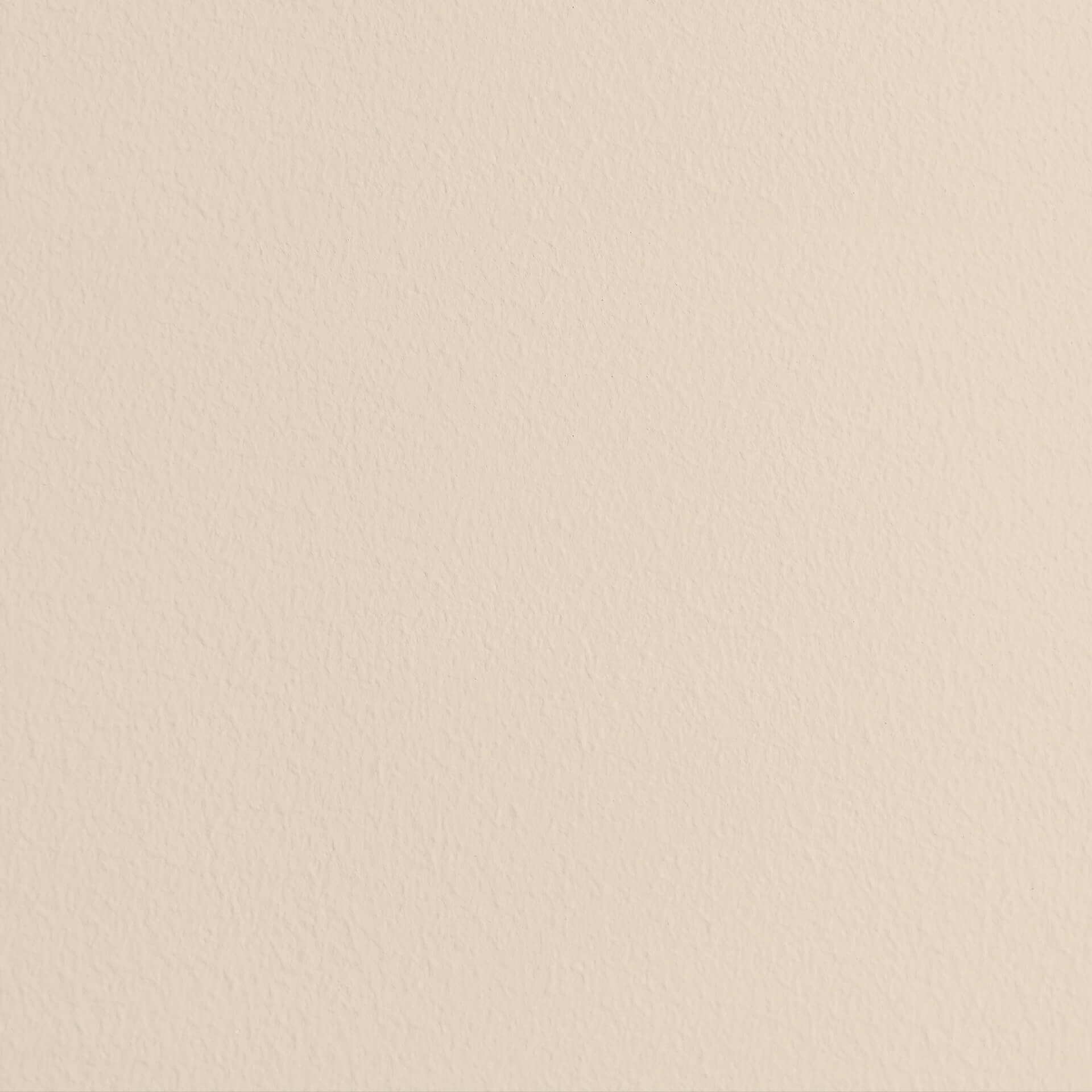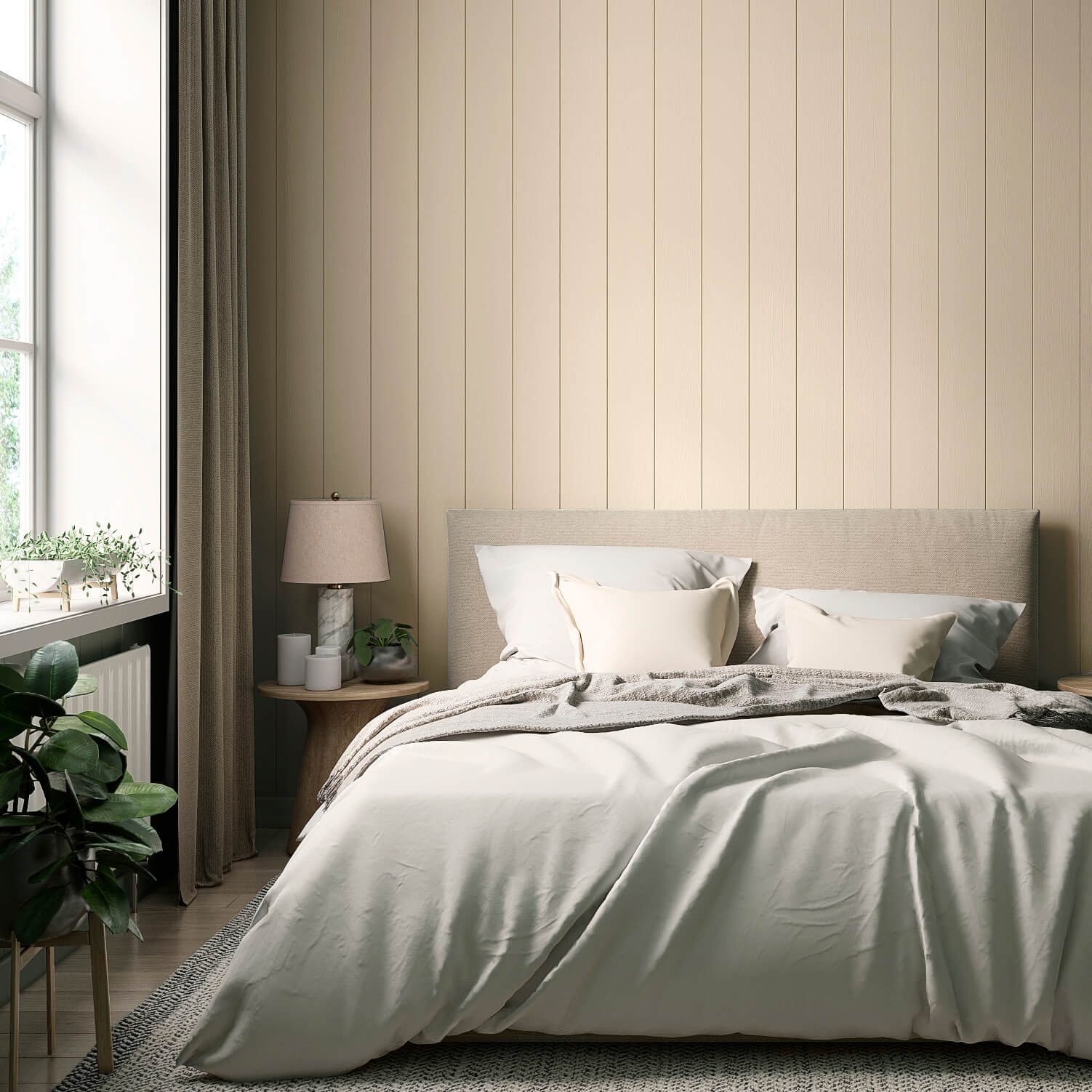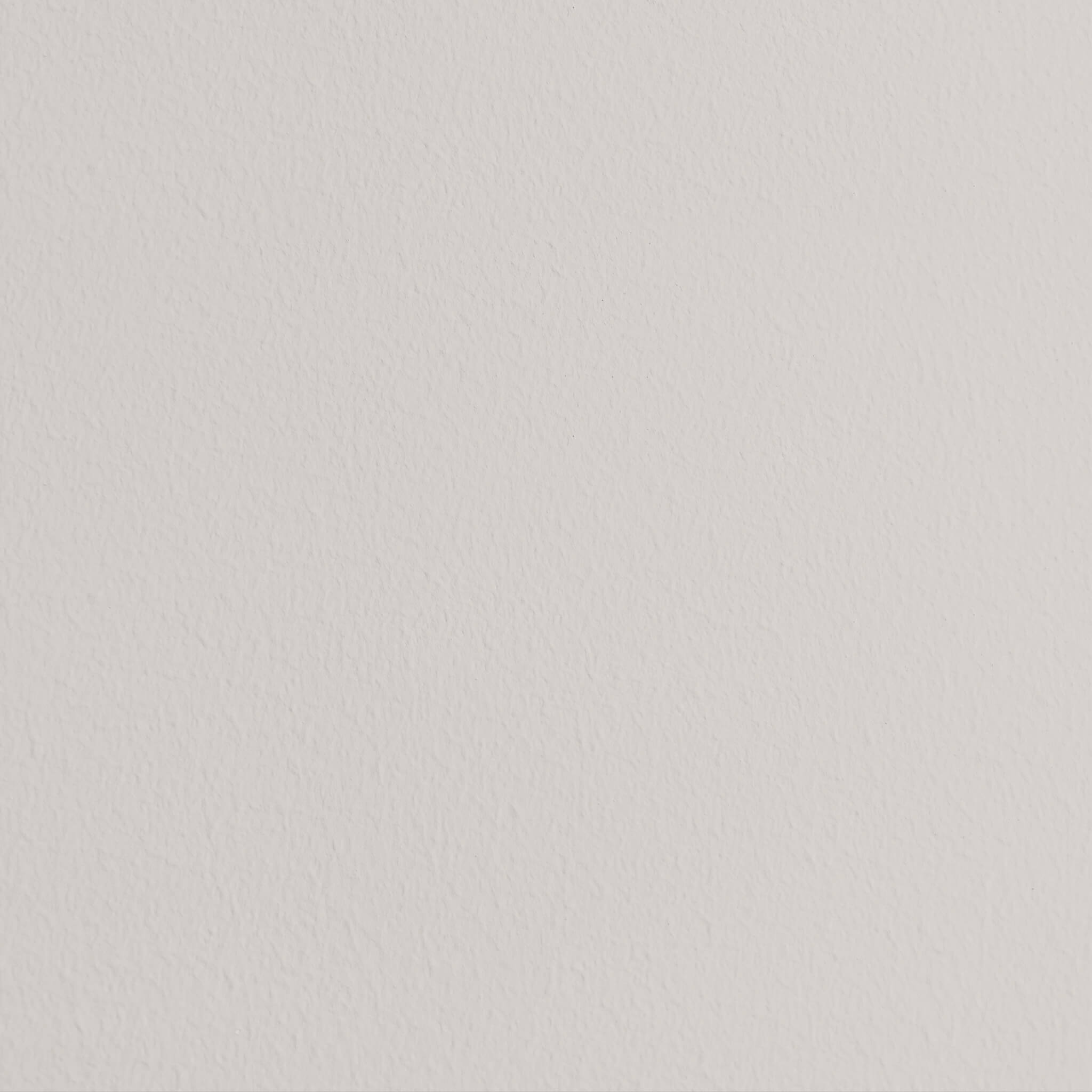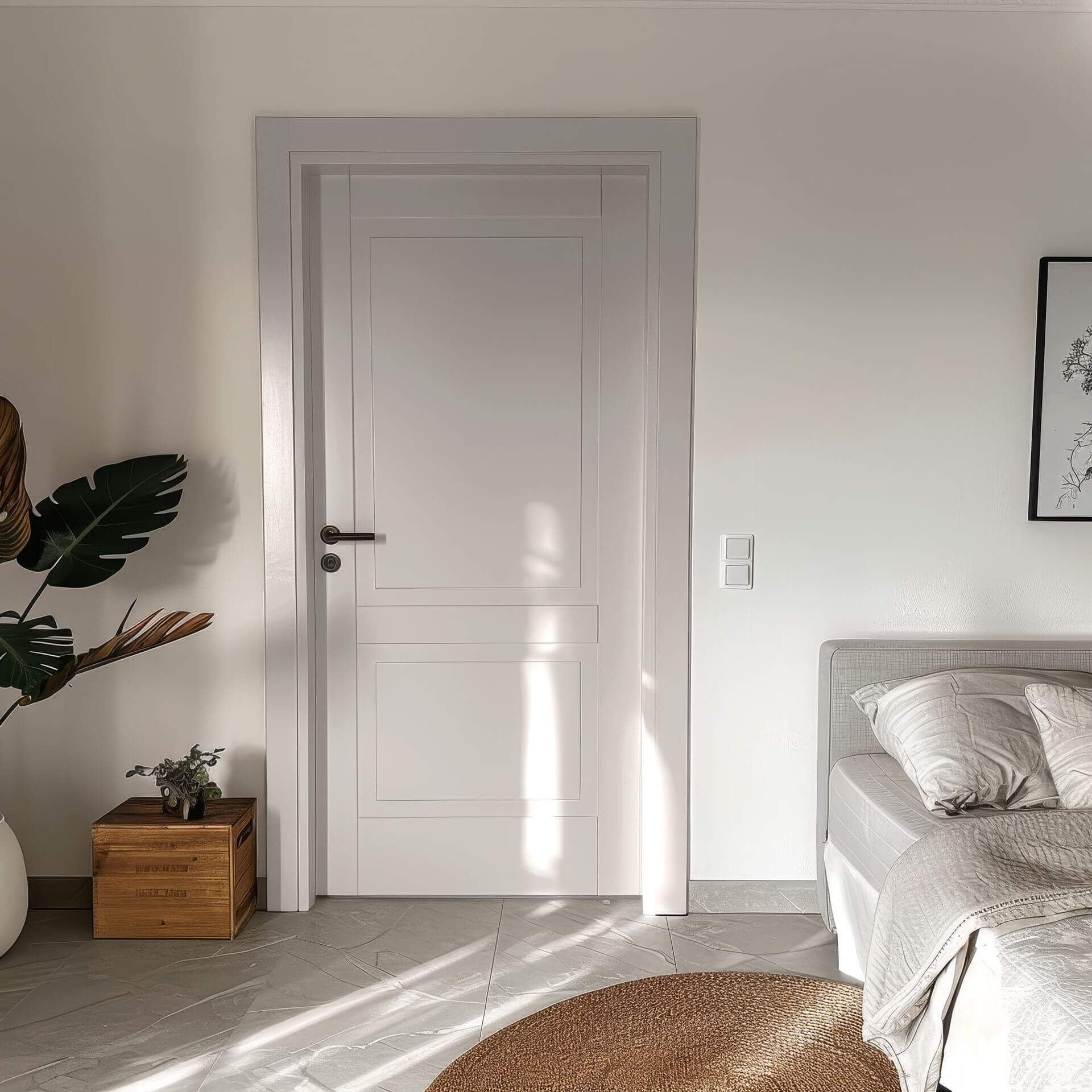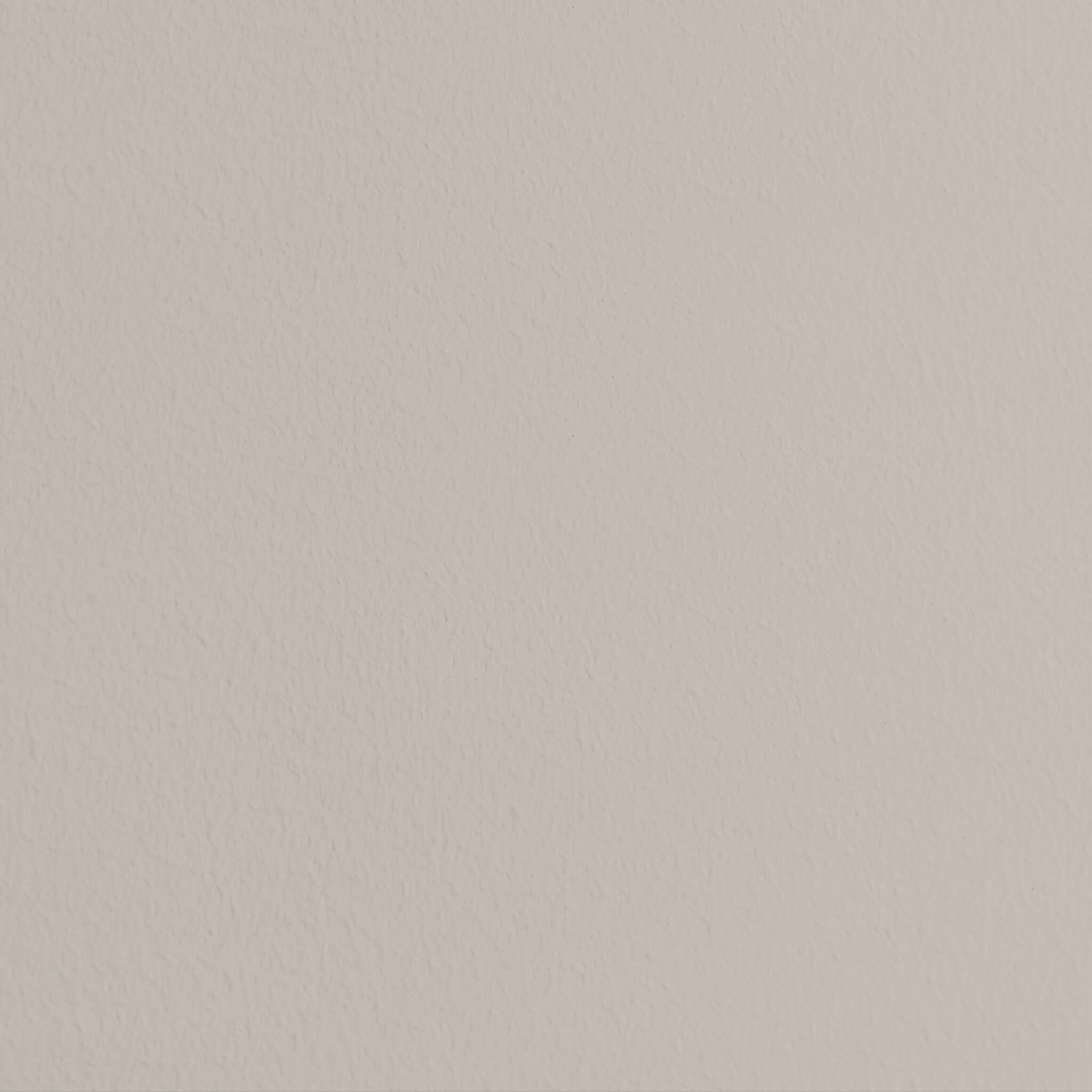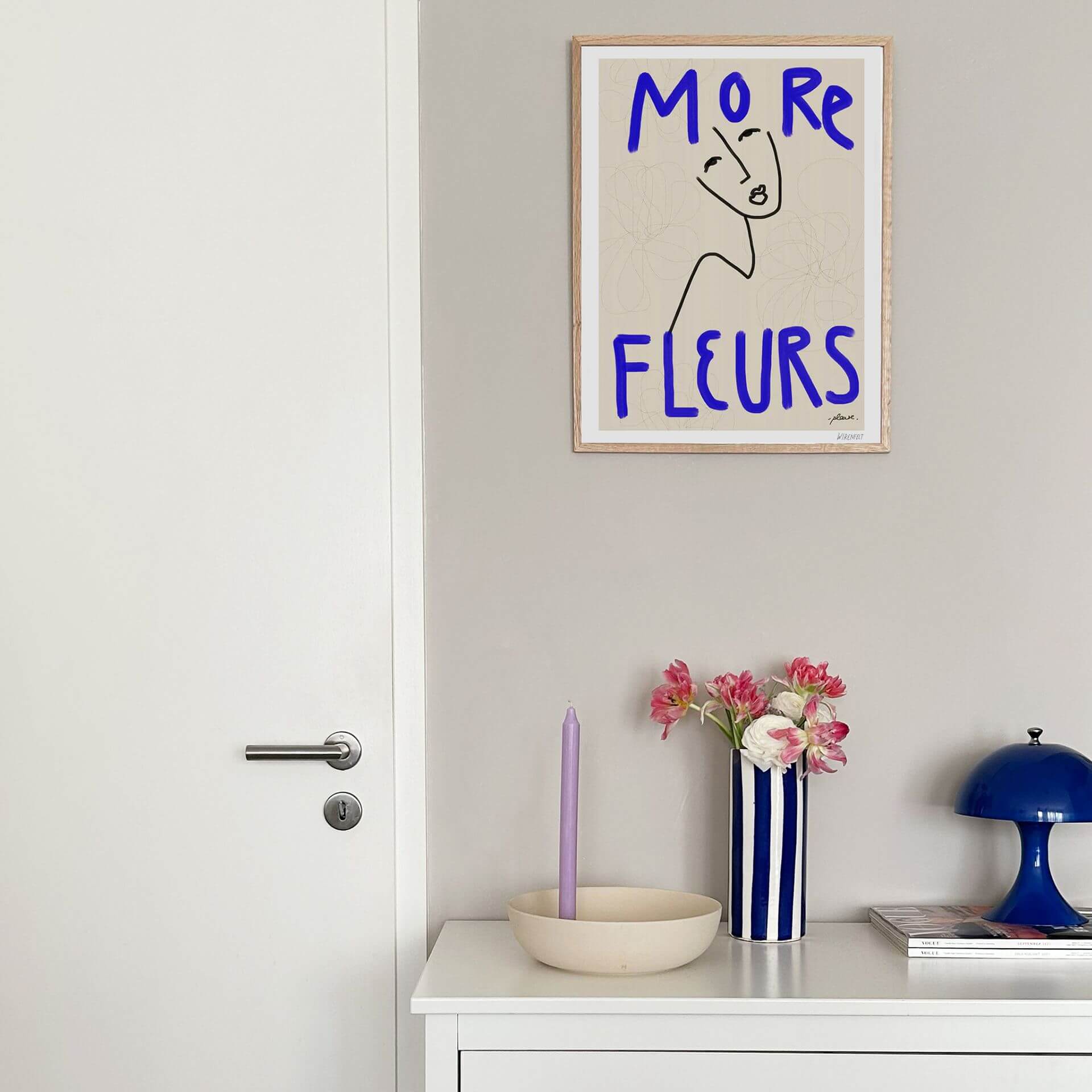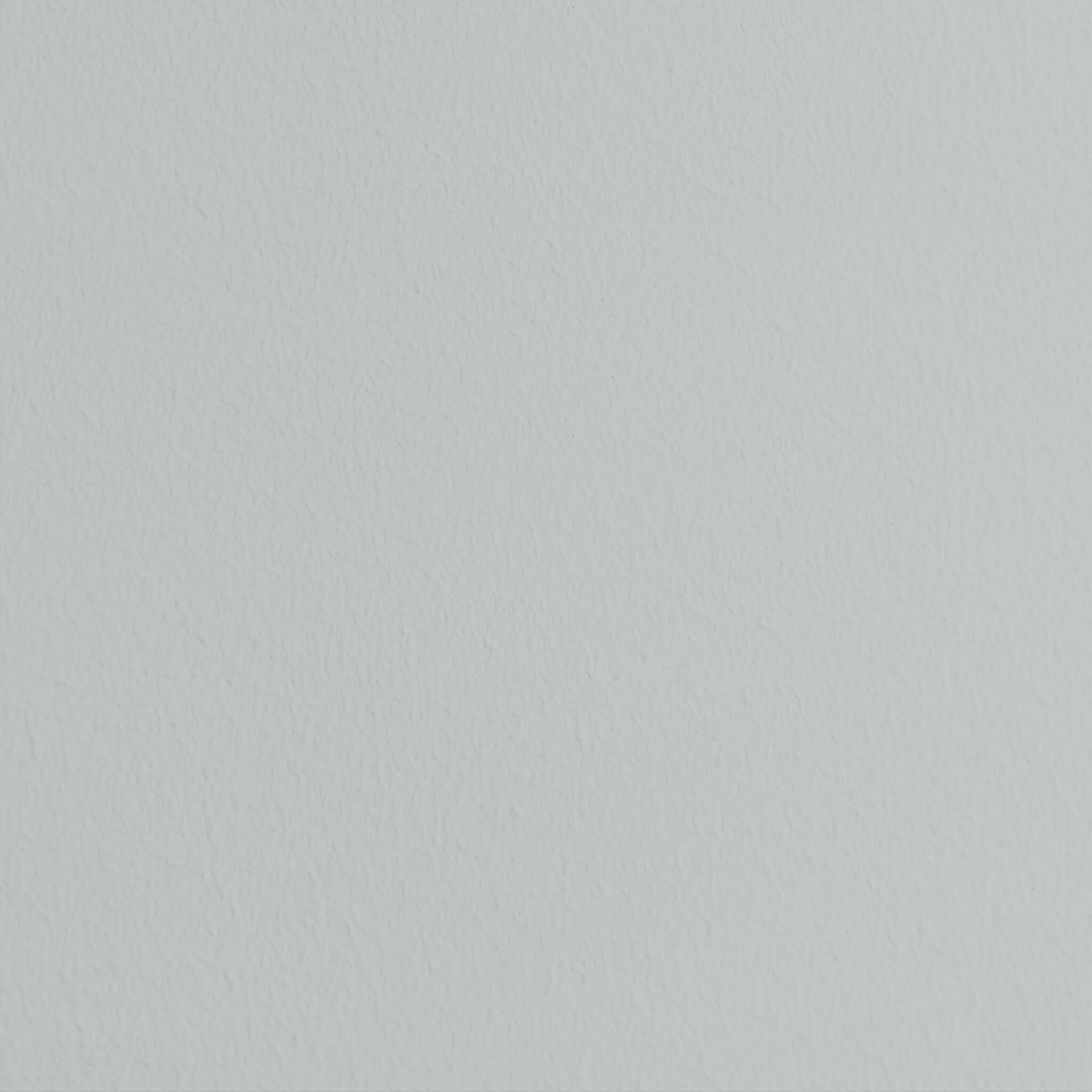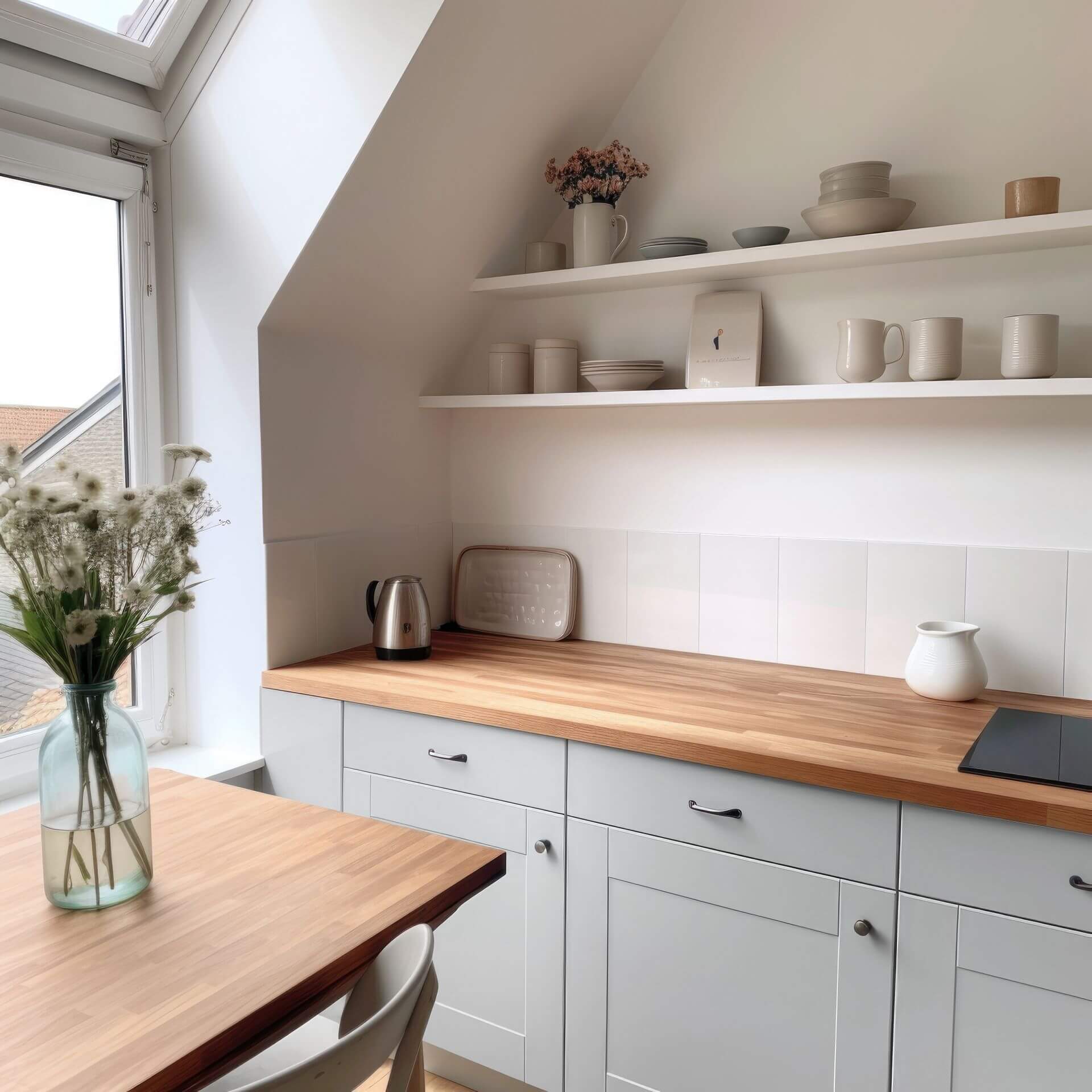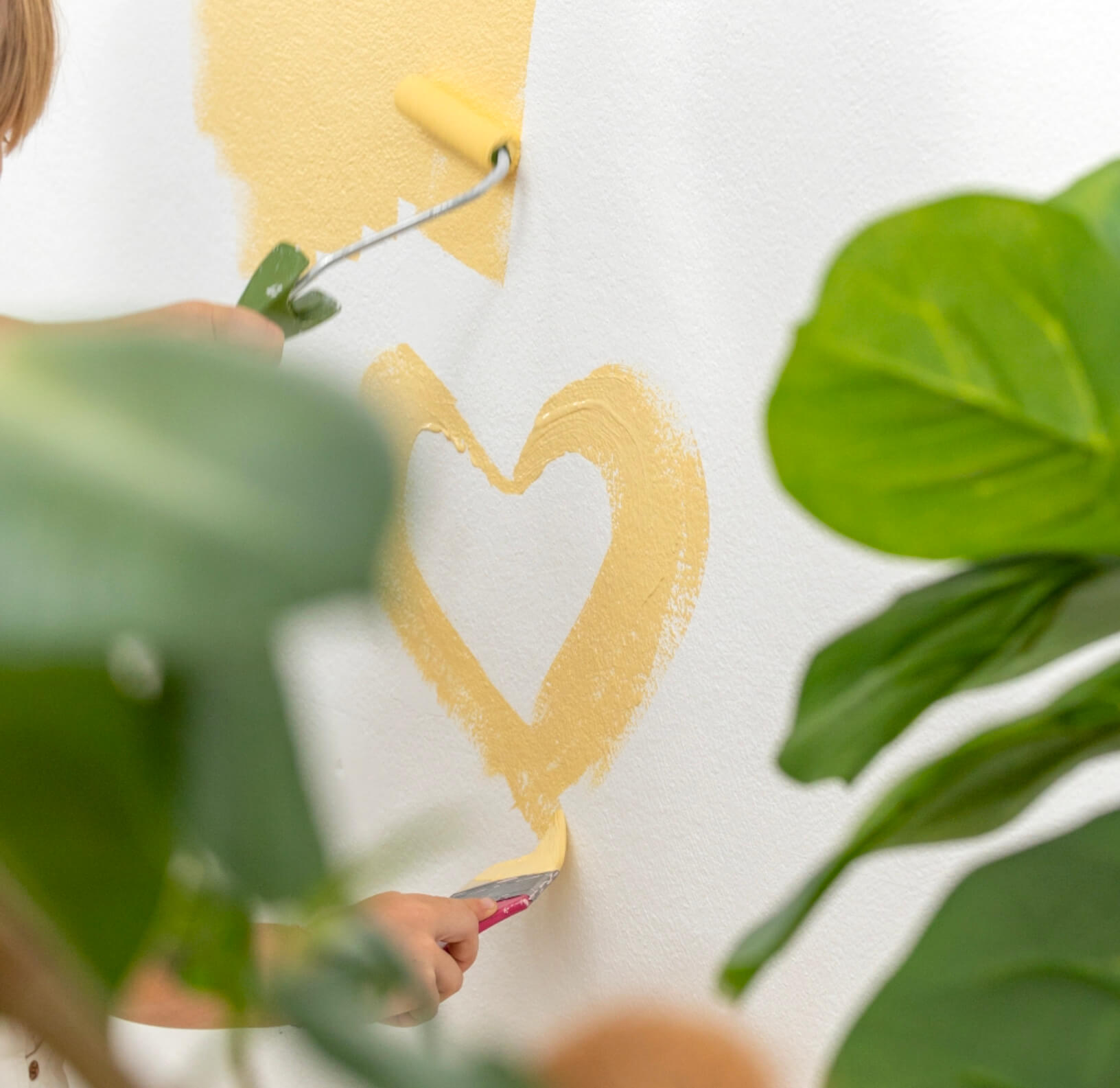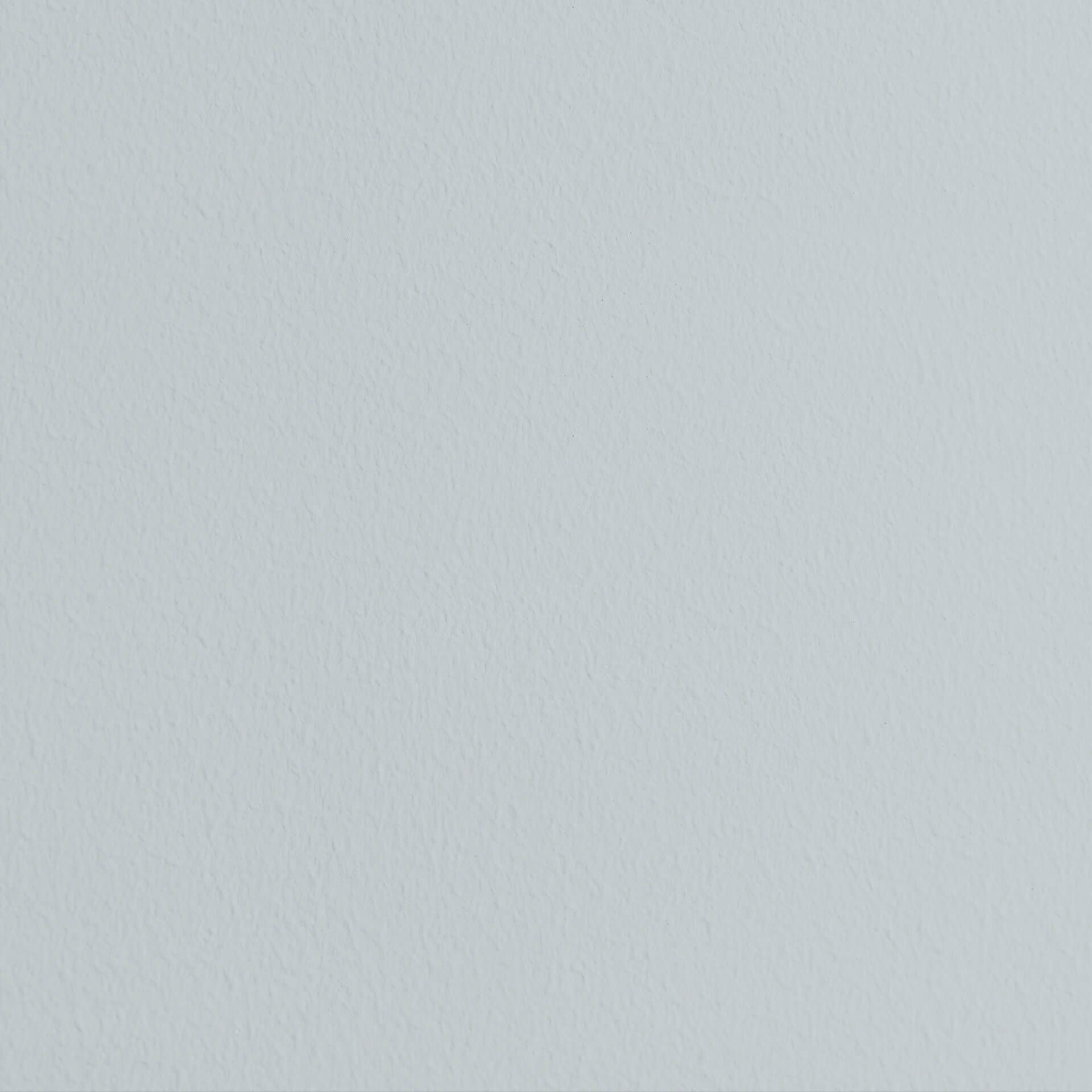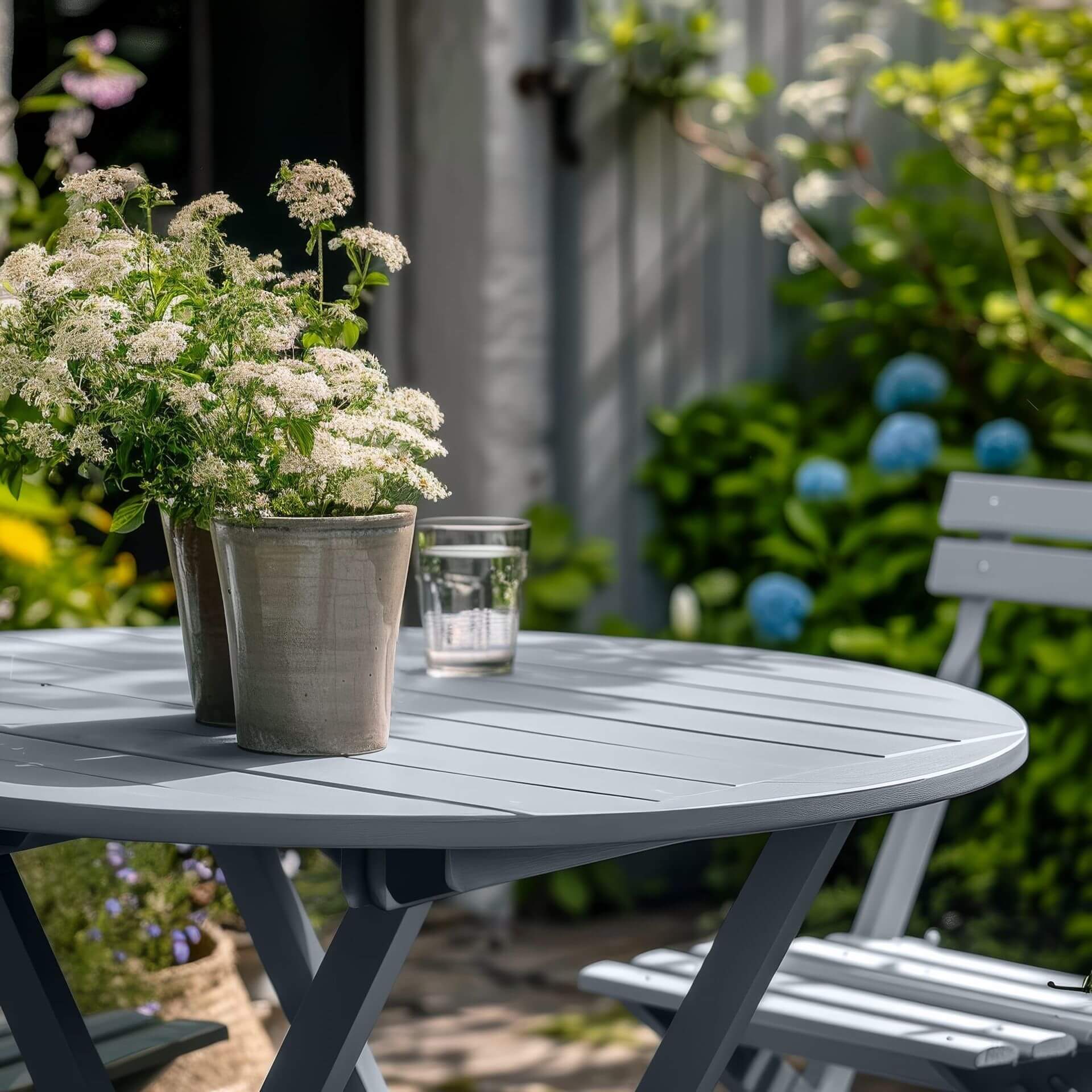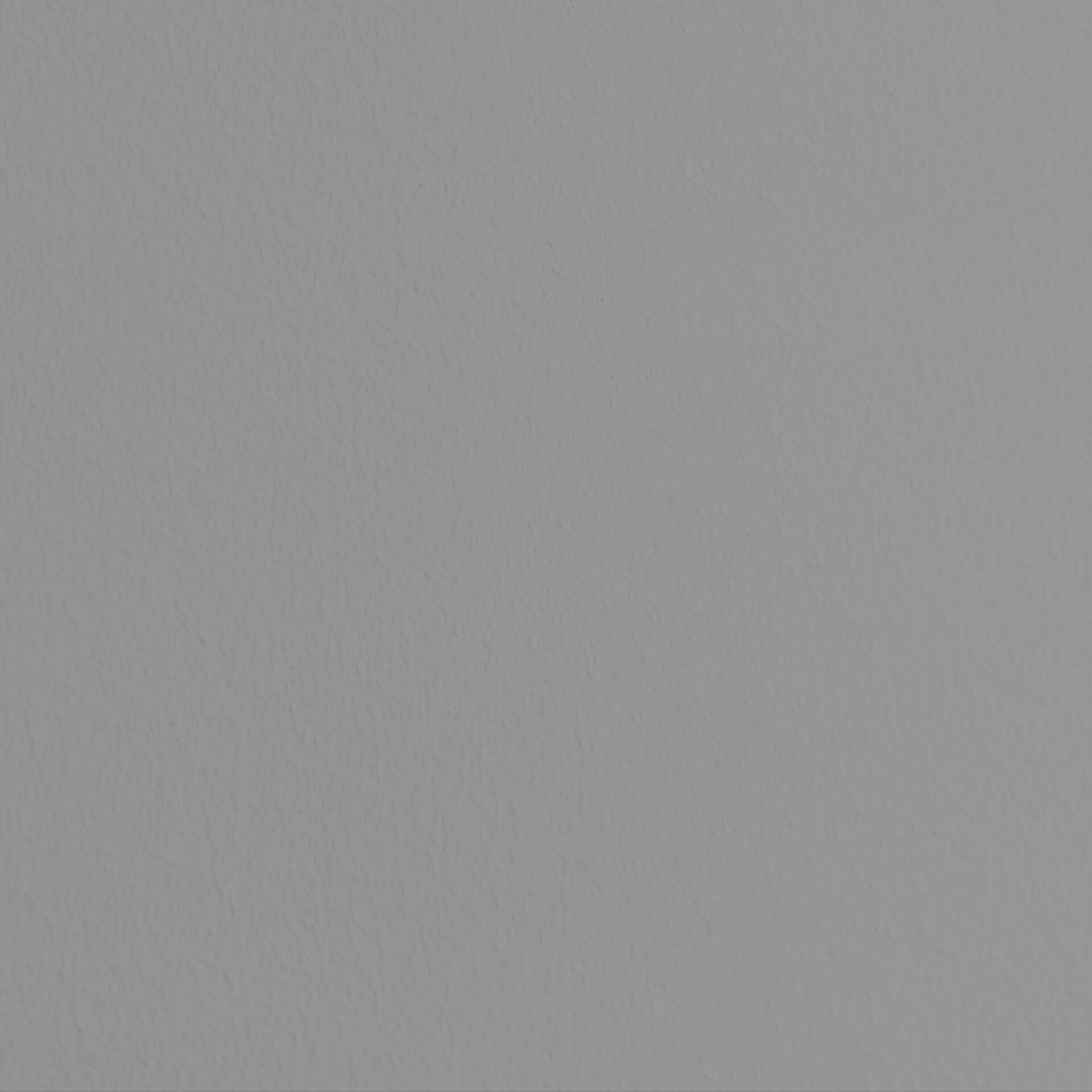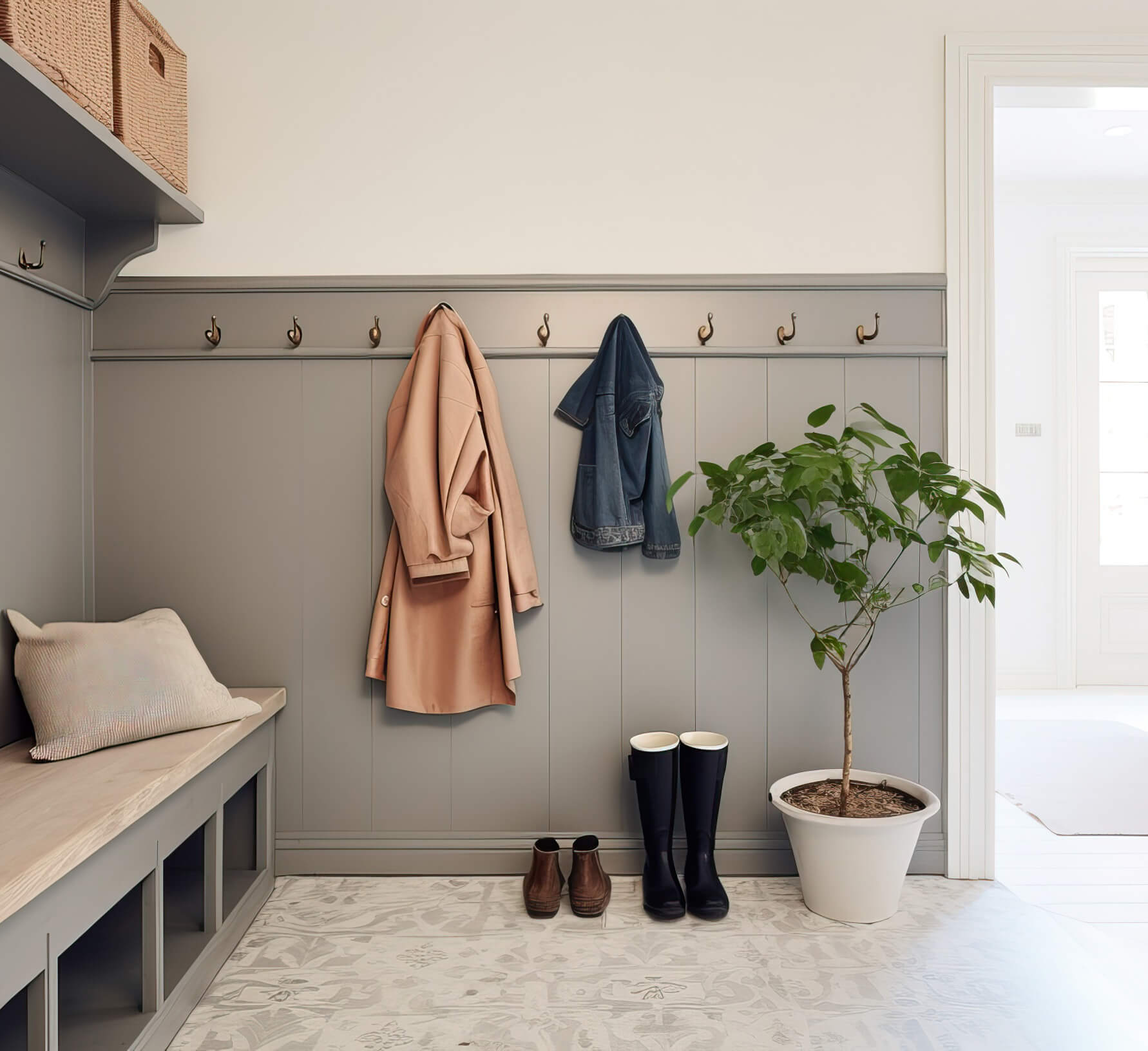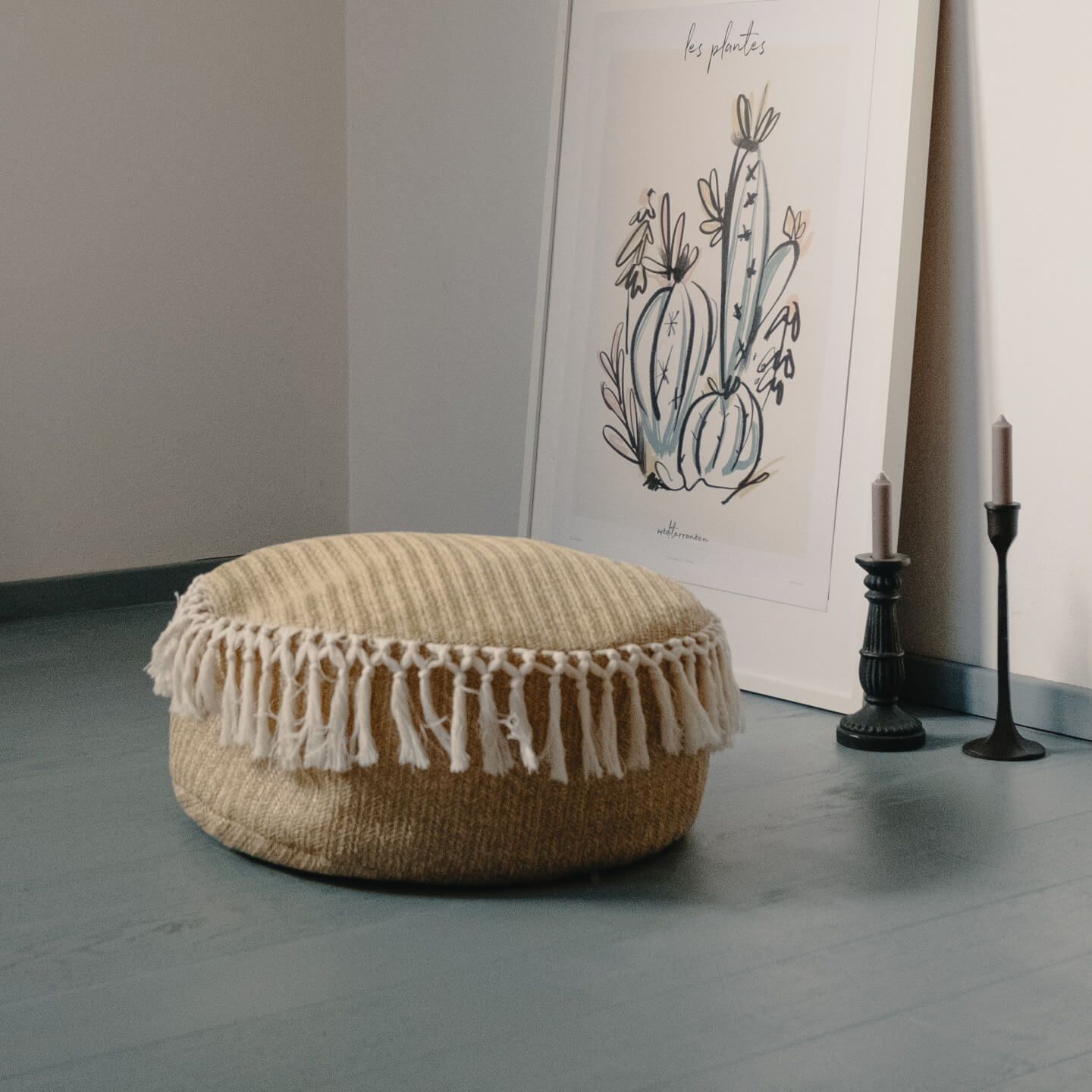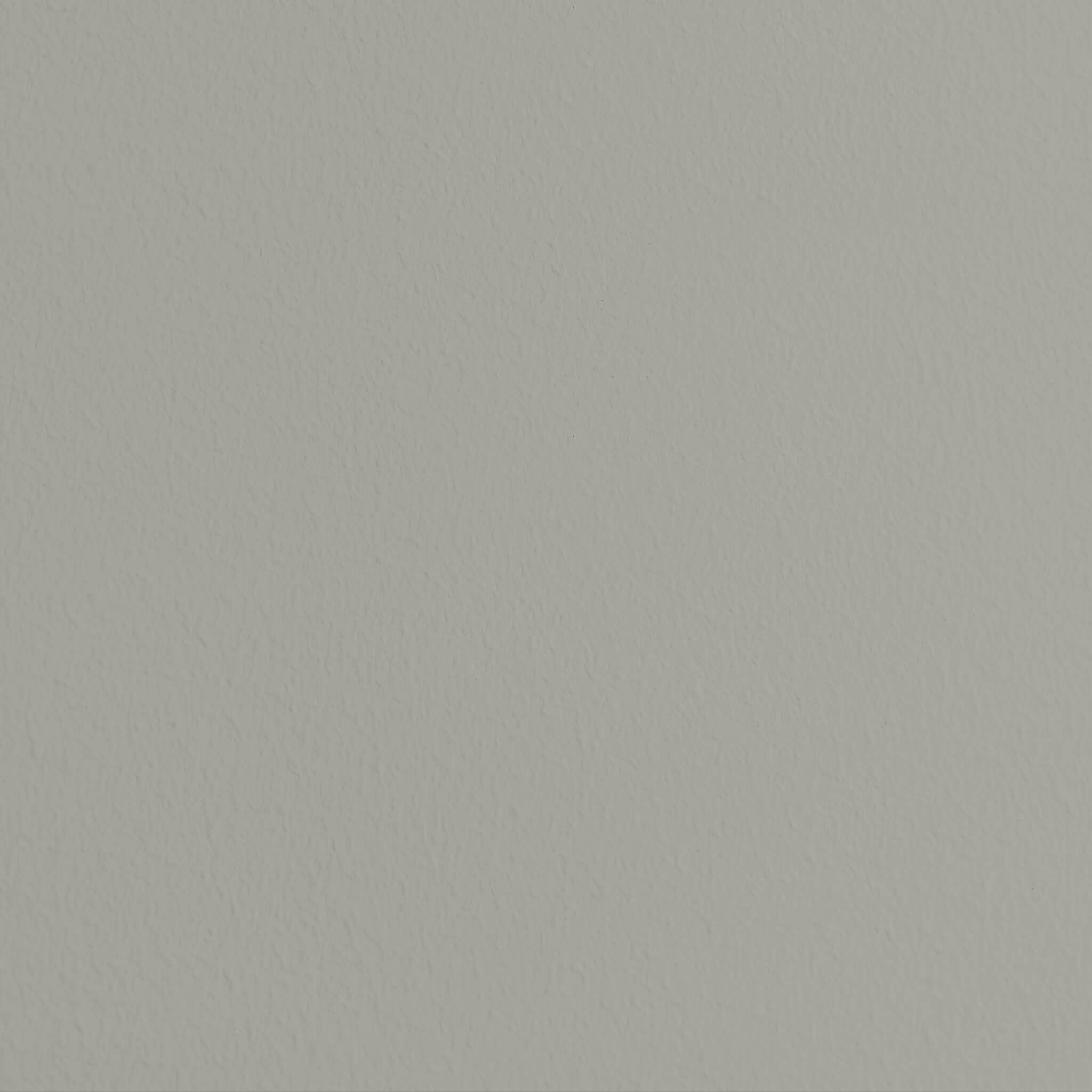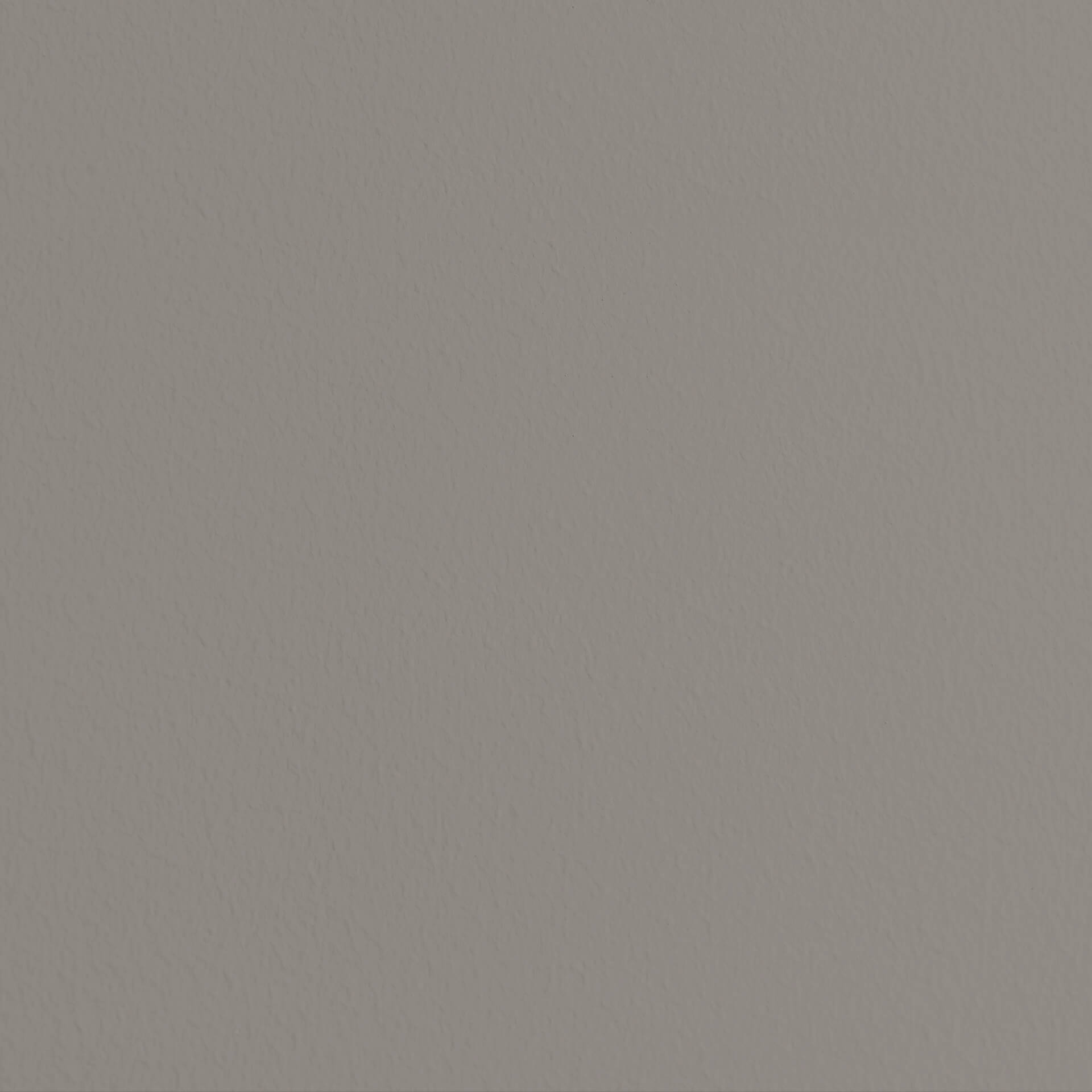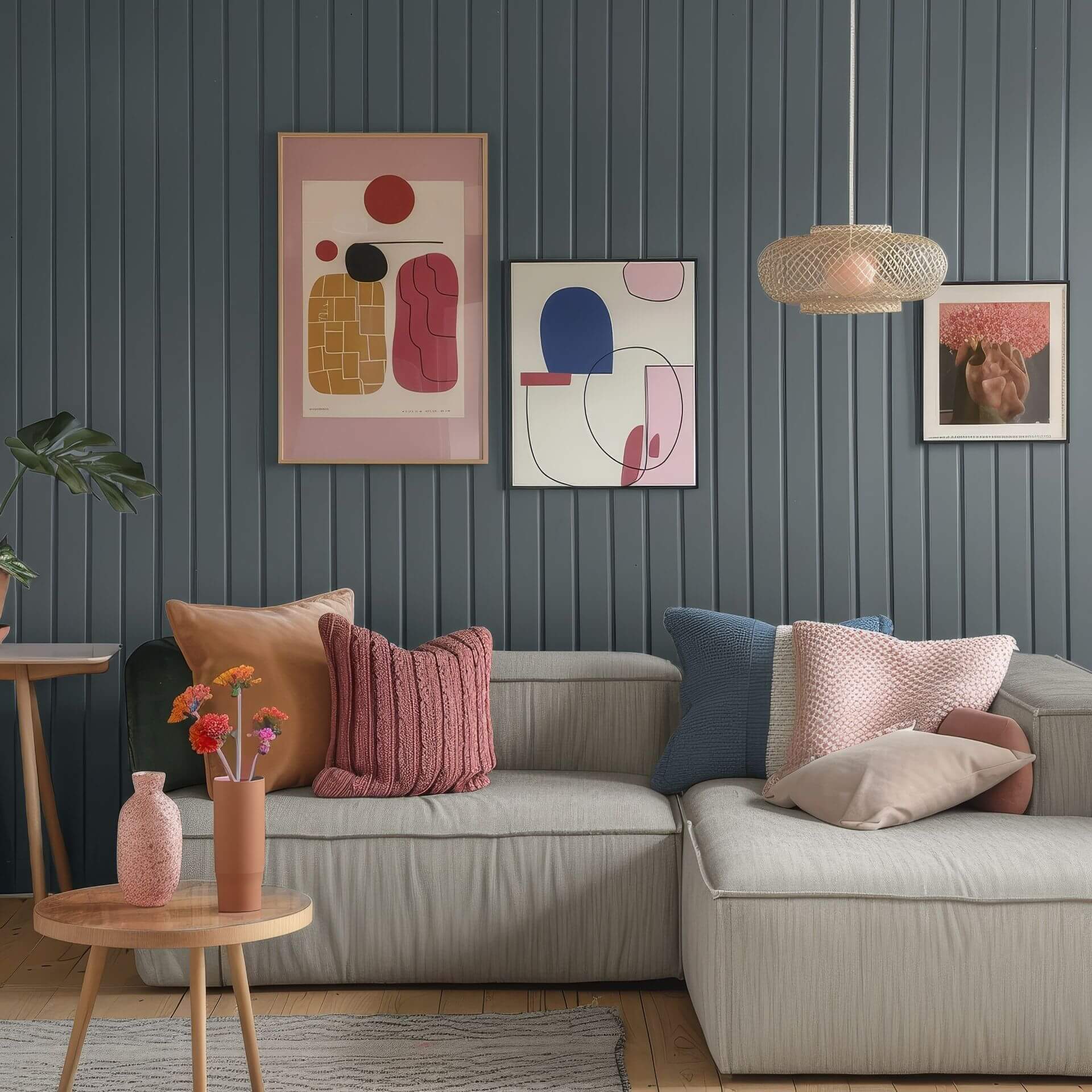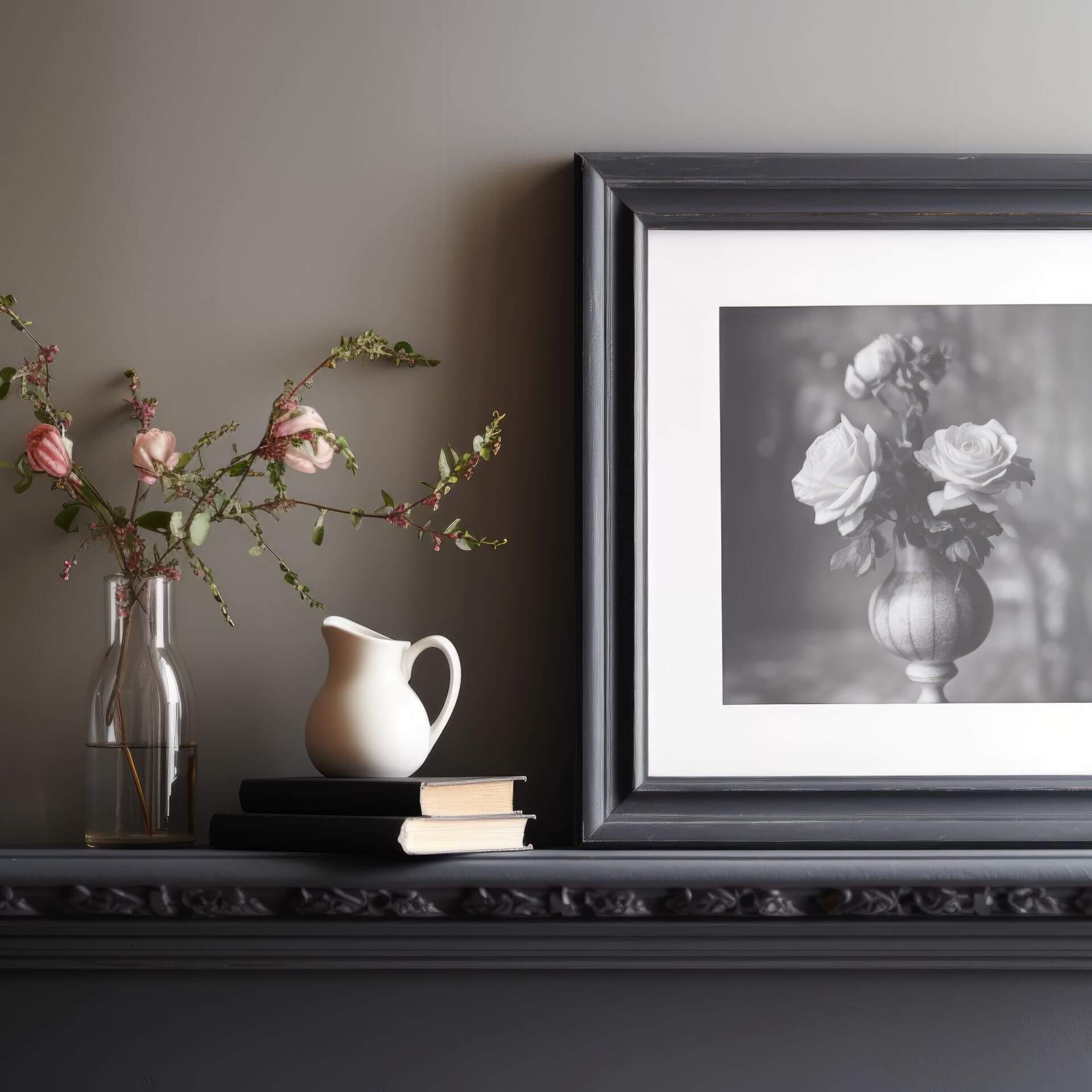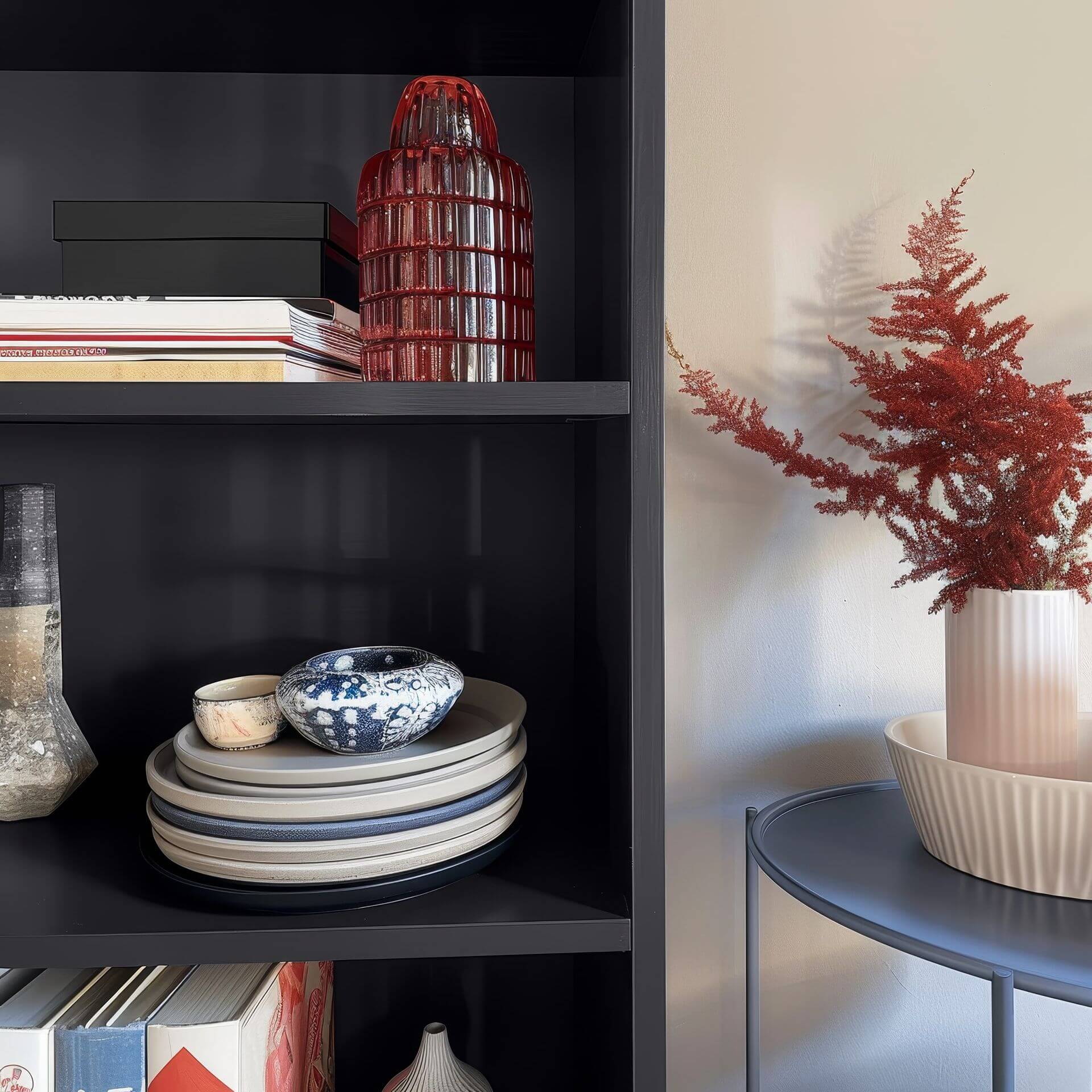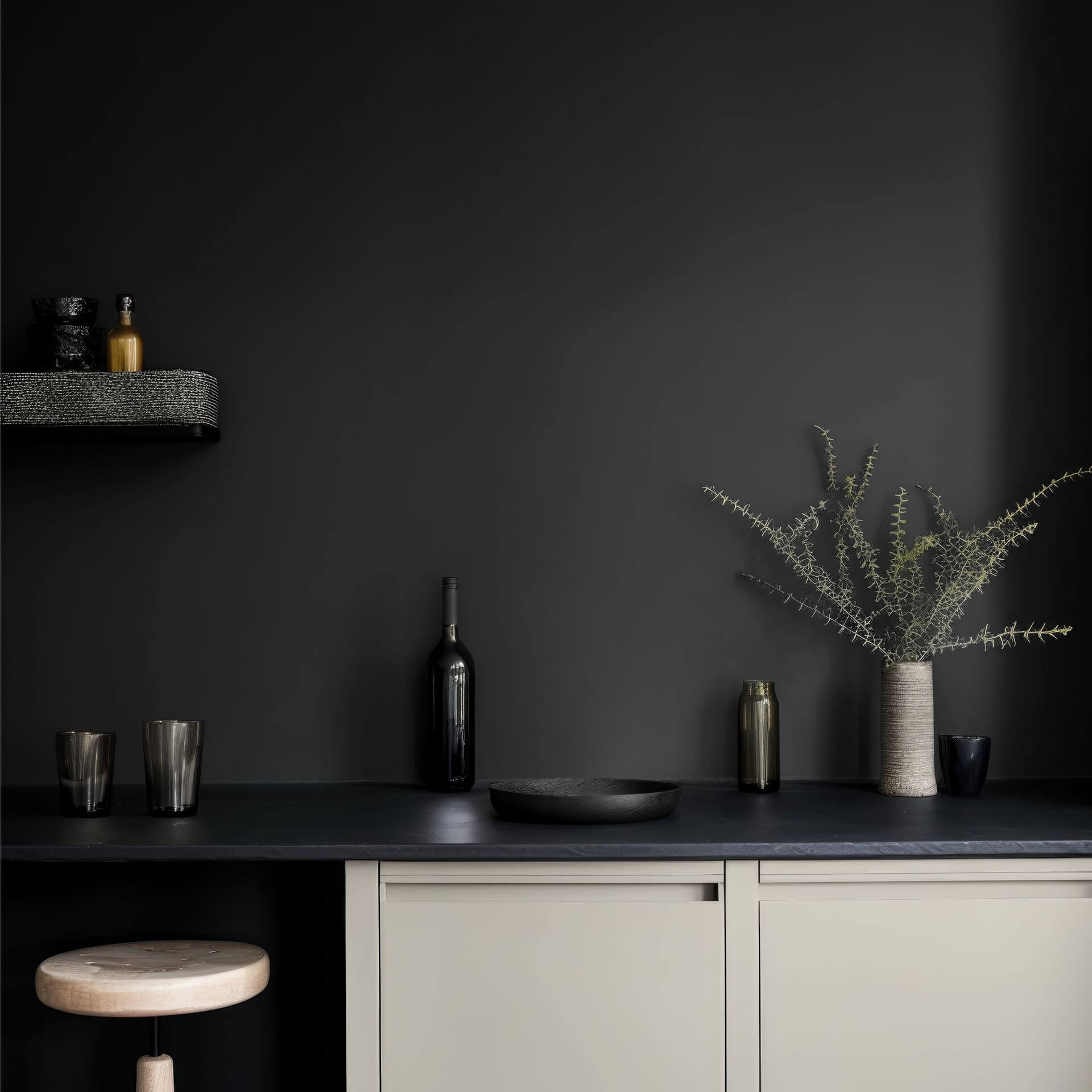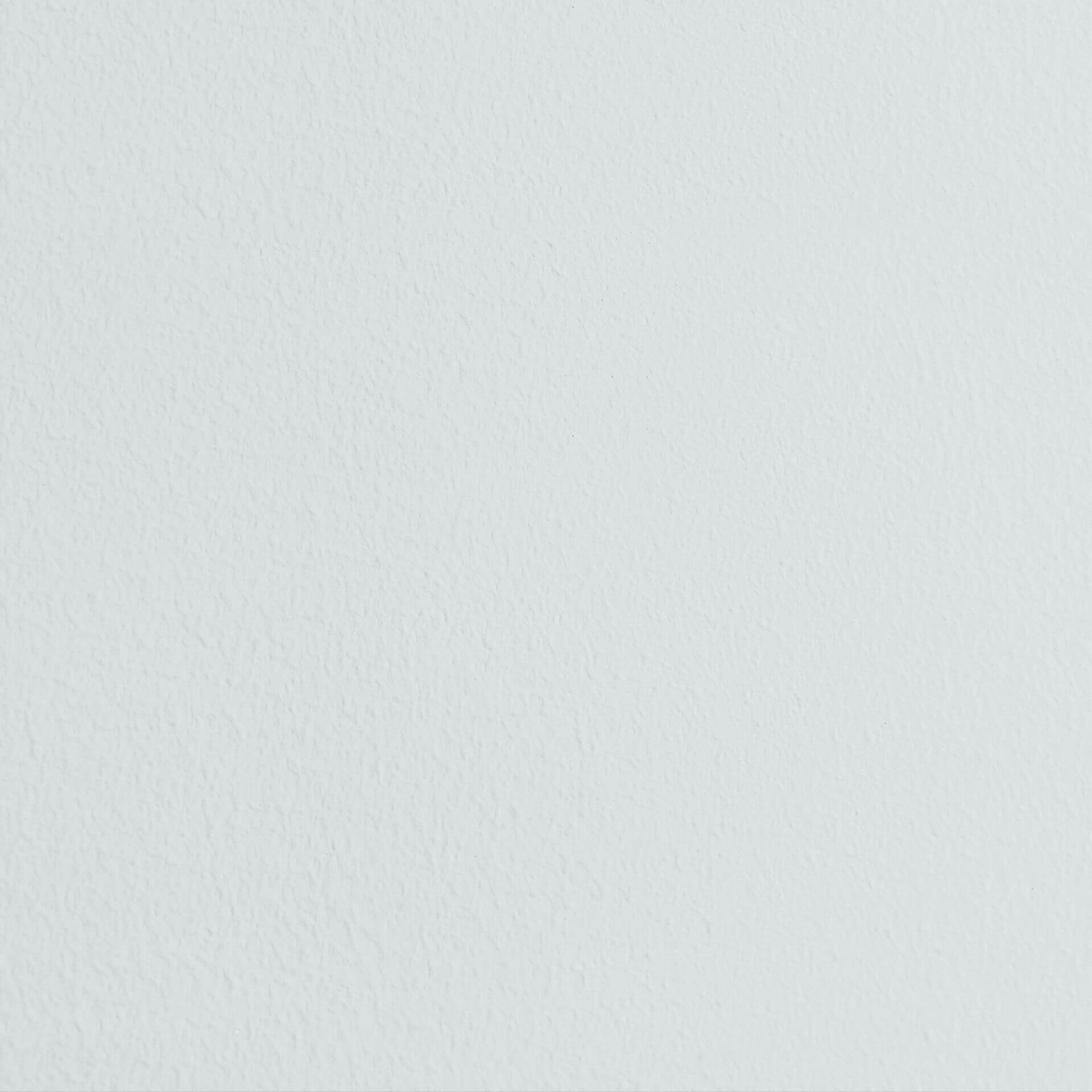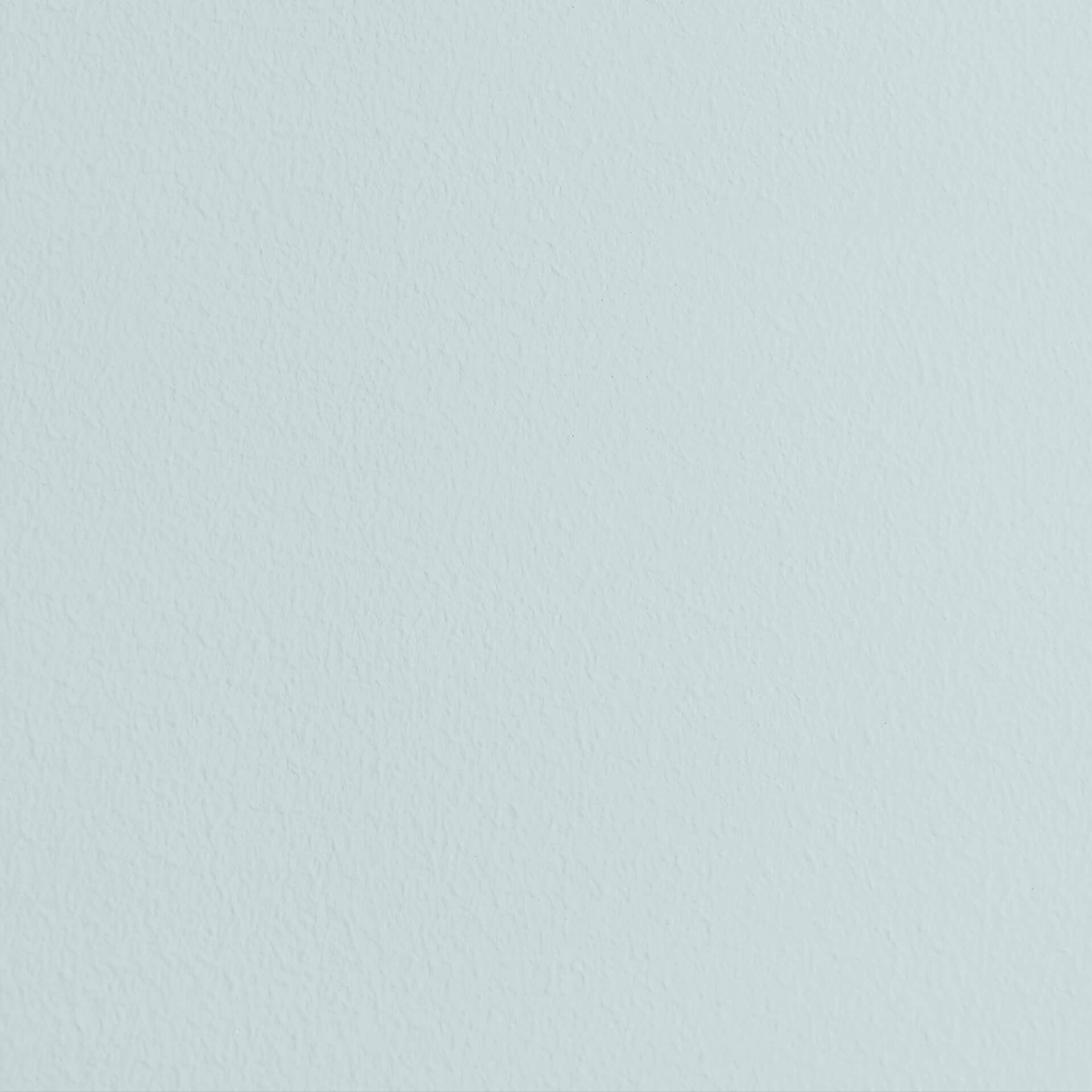

What is the difference between wall paints and varnishes?
Most wall paints are water-based emulsion paints. They are characterised by the fact that they form open-pored, i.e. breathable, matt surfaces when they dry. varnishes, on the other hand, are used to seal the surface of objects made of wood, metal, plastic or stone with a thin, impermeable layer.
What types of wall paints are there?
Wall paints differ in terms of their chemical composition. Many wall paints have synthetic binders or petroleum-based binders. These paints cover well and are easy to apply. However, they often do not fulfil our requirements for sustainability and health safety.
However, there are also ecological and sustainable wall paints that can be used with a clear conscience. The Valuable Wall Paint from MissPompadour is such a paint based on renewable plant-based raw materials, and the LittlePomp chalk paint for walls is also so safe for health that it can be used by pregnant women without any problems. As it does not release any harmful substances into the air during and after painting and is saliva-proof after drying, it is safe for children. MissPompadour also offers The Functional Wall Paint. This is a breathable wall paint that is extremely hard-wearing, wet-washable and scrub-resistant and can therefore be used in heavily frequented rooms. There are also matching varnishes for all these wall paints.
All three wall paint qualities from MissPompadour cover fantastically and are easy to apply. White wall paint in many shades is on one side of the colour spectrum at MissPompadour, black wall paint for accents in the room on the other. In between, you will find all the other colour shades: many exciting shades of the Germans' favourite colour, green wall paint, as well as the multi-talented beige wall paint and grey wall paint. If you want power on the wall, a turquoise wall paint might be the right choice for you.
Areas of application for wall paints
Wall paints can be used in all interiors. The atmosphere and even the proportions of a room can be completely changed by using wall paints. You can also use them to emphasise certain styles or moods. Dusky pink wall paints, for example, are just as suitable for a nostalgic, cosy interior as purple wall paint. On the other hand, we first associate orange wall paints with the 70s - but this colour can do so much more!
Colour + wall = many possibilities
There are almost contemplative colour shades, mostly from the blue-grey range, which have an extraordinarily concentration-enhancing effect. Blue wall paints are particularly suitable for offices and study rooms. These rooms are particularly suited to furnishings in a modern living style, where the premise "less is more" is conducive to concentration. In the bedroom, you are more likely to choose a cosy colour shade for the walls: a colour that promises peaceful nights. Perhaps the ceiling can also be coloured here. Because you can see it when you're lying down. Earthy tones such as the wall paint brown have a calming effect. A living room becomes a cosy place to stay through individual colour design. With an accent wall in petrol, you can also make art stand out.
In bedrooms and living rooms, The Valuable Wall Paint is the right choice with its particularly great look. Perhaps paint a light pink wall paint in the bedroom to bring warmth into the room. Dark corners such as a hallway without windows can be brightened up with colour - yellow wall paint is particularly suitable for literally bringing the sun into your home.
Wall paints can be used in all rooms. Rooms that are subject to a lot of wear and tear, such as hallways, kitchens and children's rooms, can particularly benefit from washable wall paint. The entrance area is always a particularly busy place in the home. Wet jackets and dirty wellies are often taken off here. In some houses, this is also where a wet dog likes to shake itself and dirt always ends up on the wall. This is no problem for The Functional Wall Paint, as it can simply be washed off wet. How about accents in a signal colour in an area like this? Wall paint in red brings the room to life. Kitchens and bathrooms are also exposed to a lot of wear and tear. How practical that you can simply wash off anything that accidentally ends up on the wall.
In children's rooms, the beautiful colour shades of LittlePomp chalk paints create a cosy environment for babies and toddlers. These pastel shades are also available as a chalk varnish. This means you can not only paint the wall, but also design furniture and toys in matching colours.
Colour-coordinated interior paint also makes a great addition to expressive wallpaper. The enchanting motifs of the high-quality MissPompadour non-woven wallpapers are perfectly matched to the over 90 colour shades in the MissPompadour wall paints collection. This means that every wallpaper can be complemented with a matching wall paint.
Which wall paints can I order from MissPompadour?
There are 3 wall paint qualities at MissPompadour. Firstly, The Valuable Wall Paint and then The Functional Wall Paint. Both wall paints are available in over 90 colour shades. There is also LittlePomp chalk paint. This is a children's collection in 15 enchanting, soft pastel shades that are also suitable for adults. We have the right colour for every wall!
The Valuable Wall Paint - our most sustainable wall paint
The Valuable Wall Paint is a highly opaque, spray-resistant wall paint made from bio-based raw materials. The Valuable Wall Paint is VOC-free, which means that it does not release any toxic vapours into the room air during processing and drying. It is also completely odourless and permeable to water vapour. This ensures a pleasant indoor climate. This sustainable paint creates a matt, extremely elegant surface and can be applied to wallpaper, woodchip and all types of plaster.
The Functional Wall Paint - our hard-wearing and washable wall paint
The Functional Wall Paint is a wall paint that combines almost all the positive properties of conventional latex paint. It can be wiped off when wet and is abrasion and impact resistant. Stains can simply be washed off. Unlike latex paint, however, The Functional Wall Paint is VOC-free, water-based, low-odour and easy to repaint at any time. Use The Functional Wall Paint on all walls subject to wear and tear, in the hallway, kitchen or contract area. This washable wall paint is suitable for painting over wallpaper and woodchip and for use on all types of plaster.
Painting walls with LittlePomp chalk paint
LittlePomp chalk paint is made from bio-based raw materials. It is VOC-free, water-based, completely odourless and breathable. The highly opaque LittlePomp chalk paints are - and this is particularly important in children's rooms - robust and impact-resistant. The LittlePomp colour shades have been specially developed for children according to developmental psychology criteria, but are also suitable for adults. They are easy and unproblematic to work with. LittlePomp chalk paints for walls are suitable for painting over wallpaper and woodchip and, of course, for any type of plaster.
Frequently asked questions about wall paints
- Do I need a primer to apply wall paint?
If the painted walls are intact and the plaster is smooth, you can simply paint over the wall. If the plaster is uneven, crumbly or sandy, it is advisable to prime with MissPompadour To Prime Walls. This also applies to highly absorbent walls, such as plasterboard. - Can I simply paint over old wall paints?
Yes, in most cases the old wall paint can simply be painted over. MissPompadour Paints also cover dark coats well. You can also repaint latex paint in most cases. If the latex paint is very smooth, roughen the surface a little with sandpaper. - What tools do I need to paint a wall?
To paint a wall, you will definitely need a paint roller with a handle. A brush is recommended for corners and edges. It's best to pour the paint into a paint tray so you can apply it easily to the roller. And to paint clear edges, be sure to mask them well with adhesive tape! You can also find all of these products in our 5-piece wall paint set. - How many coats of paint does a wall need?
The paint should always be applied twice. Some colour shades, such as reds and yellows, often require a 3rd coat. - How long does the drying process take?
There should always be approx. 4 hours between coats, then you can continue painting the wall. - Can wall paints be touched up later?
If the actual coat of paint was not applied years ago, it can be touched up. - When is it worth using a paint sprayer?
For very large areas, ceilings and unoccupied rooms, a paint sprayer can make the work much easier.

